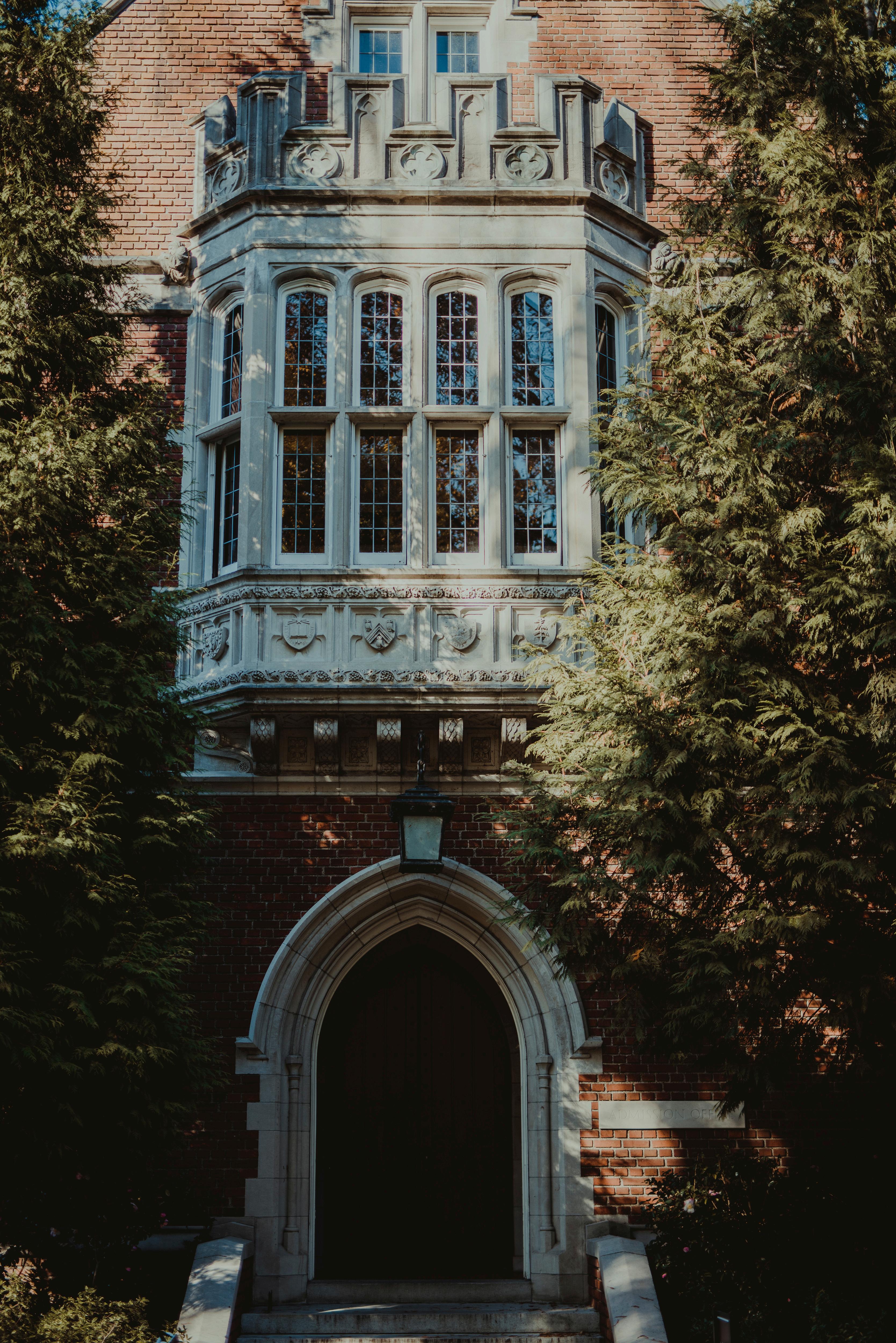
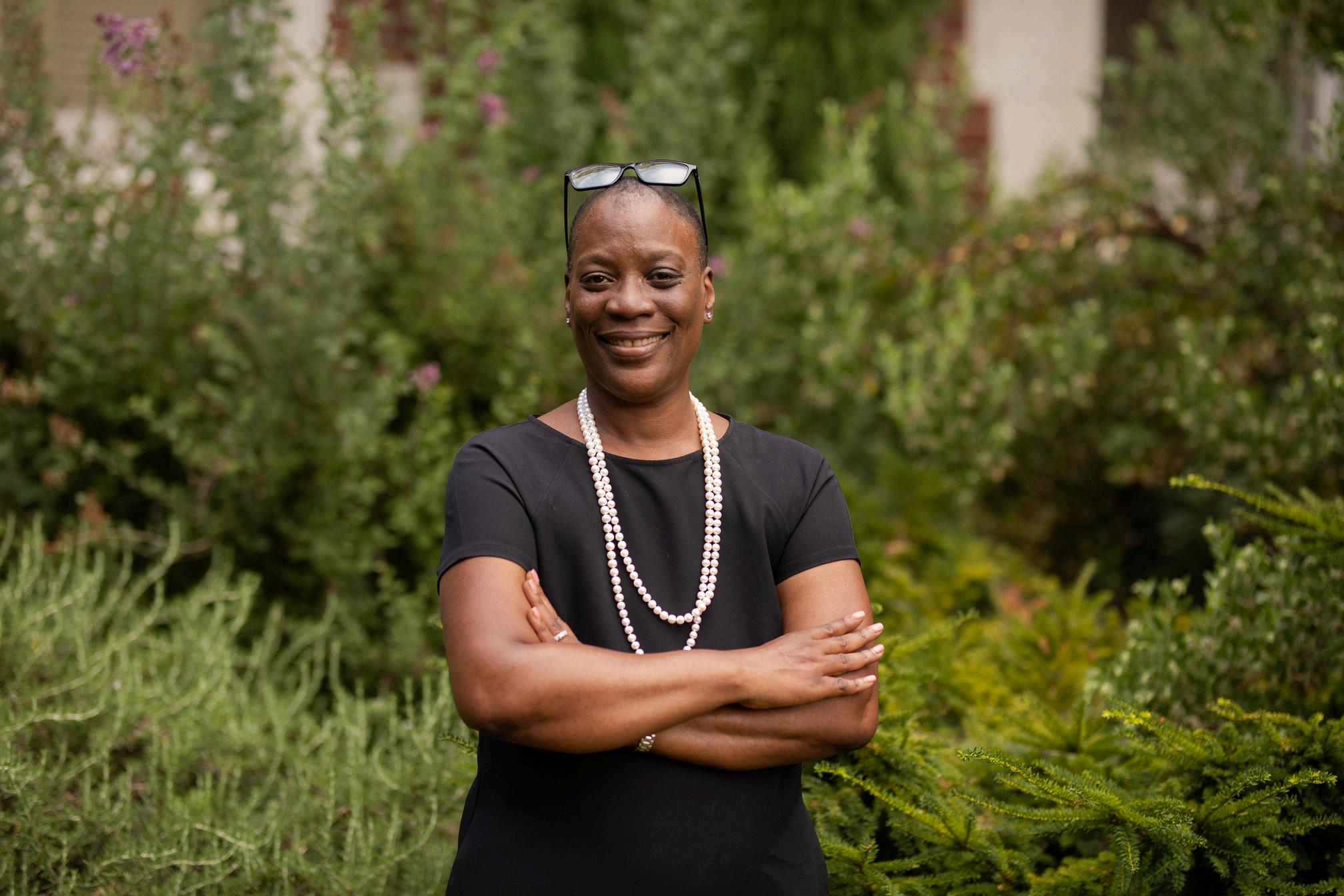



A former colleague once told me, “Hope is not a strategy.” For years, I carried that belief with me, focusing on data-driven plans, measurable outcomes, and concrete action steps. It felt practical, professional, and responsible.
But this past year has made me reconsider. As DEI work faces unprecedented challenges across higher education – from legislative attacks to budget cuts to questioning of our very existence –I've discovered something surprising: sometimes hope is exactly the strategy we need.
Not hope as passive wishing, but hope as an active choice that shapes how we respond to adversity. Not hope instead of planning, but hope as the foundation that makes our plans worth pursuing.
This year showed me what hope looks like in practice. A group of our student leaders took on the challenge of learning to become intergroup dialogue facilitators These weren't easy conversations – they tackled complex issues with no simple answers But by creating spaces where people could share different perspectives and actually listen to each other, these students demonstrated that bridging divides is possible, one dialogue at a time.
Our voter engagement efforts brought this same spirit of active participation to civic life. Through registration drives and educational events, we saw record turnout from our community. It was encouraging to watch students, staff, and faculty support each other through the democratic process – sharing information and creating space to process results together.
Sometimes the most important work happens in the smallest moments. Our first annual Fireside Chat proved this point, bringing people together for informal conversations that built real connections. No agenda, no formal presentations – just community members getting to know each other as people.
Our Staff Luncheons continued this tradition of simple but meaningful connection. Month after month, staff from across campus gathered to share meals and stories, breaking down the silos that can make a college feel disconnected The Heritage Programming Committee reminded us why representation matters. Each cultural celebration they supported wasn't just an event – it was an opportunity for community members to share their traditions and see themselves reflected in our institutional life.
Our MLK Day programming captured something essential about our approach: we honor the past by building the future. Community members participated in service projects turning a day of remembrance into a day of action There's something powerful about working side by side – it breaks down barriers in ways that meetings never could. Ben McBride's visit to discuss the Beloved Community sparked conversations that continue today. He challenged us to think
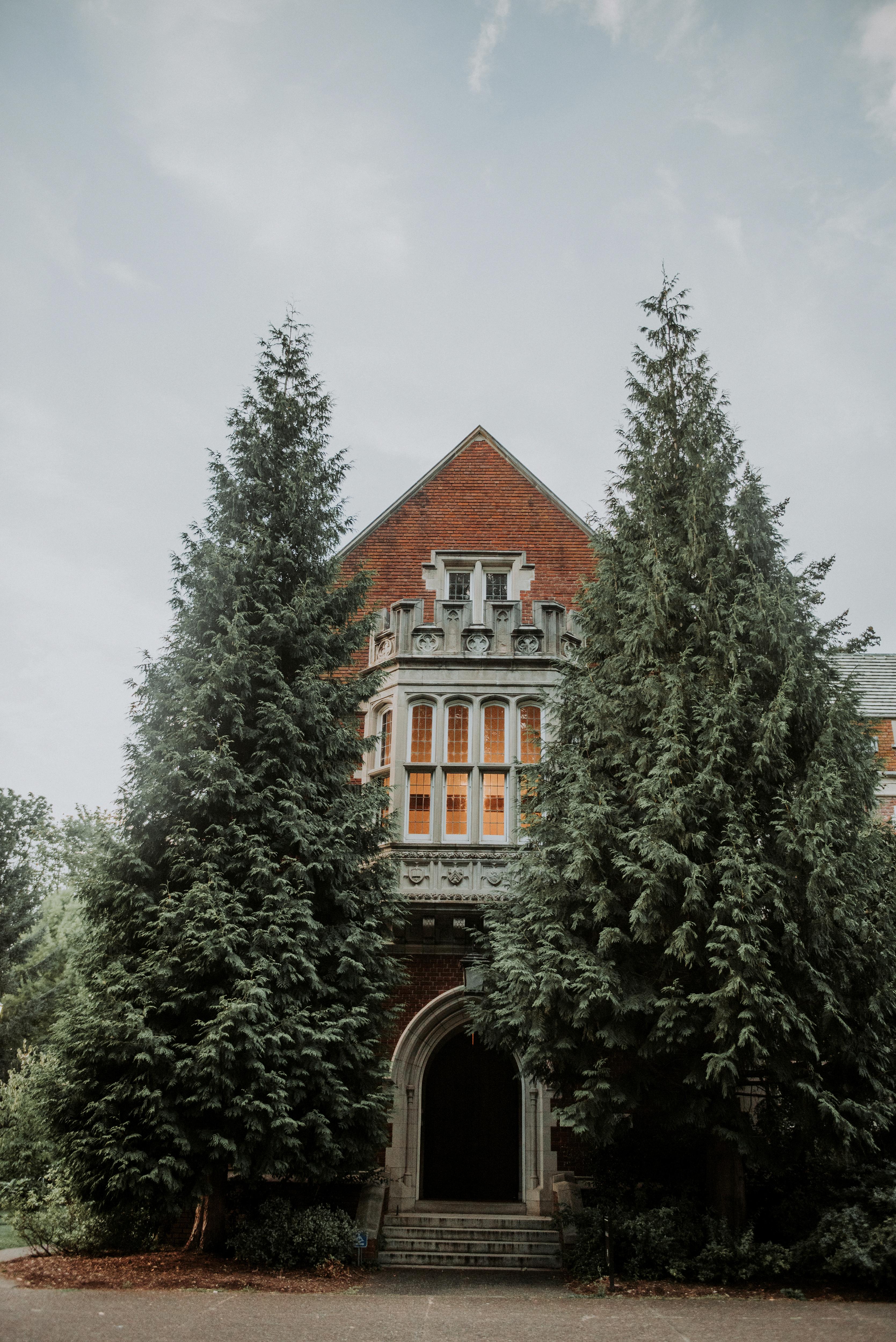
about community not as something
achieve, but as something we practice
His words resonated because they matched what we've been discovering all year: real change happens through consistent, intentional actions, not grand declarations.
I won't sugarcoat it – this work has gotten harder. The external pressures are real, and some days the path forward feels uncertain But here's what I know: every successful initiative this year happened because people showed up. Because they chose to engage rather than retreat. Because they believed that what we're building together matters.
That former colleague was partially right – hope alone isn't a strategy. But hope that motivates action, hope that brings people together, hope that persists through setbacks. That's not just a strategy. It's the foundation for everything else we do.
As we look ahead, our commitment remains unchanged We'll continue creating spaces for dialogue, building bridges across differences, and working toward a community where everyone can thrive We'll do it through programs and policies, through daily interactions and institutional changes. Most importantly, we'll do it together. Thank you for your part in this work. Every conversation you've joined, every event you've attended, every moment you've chosen connection over division – it all matters. You are the reason I have hope.
With gratitude and determination,
“Change will not
– Barack Obama
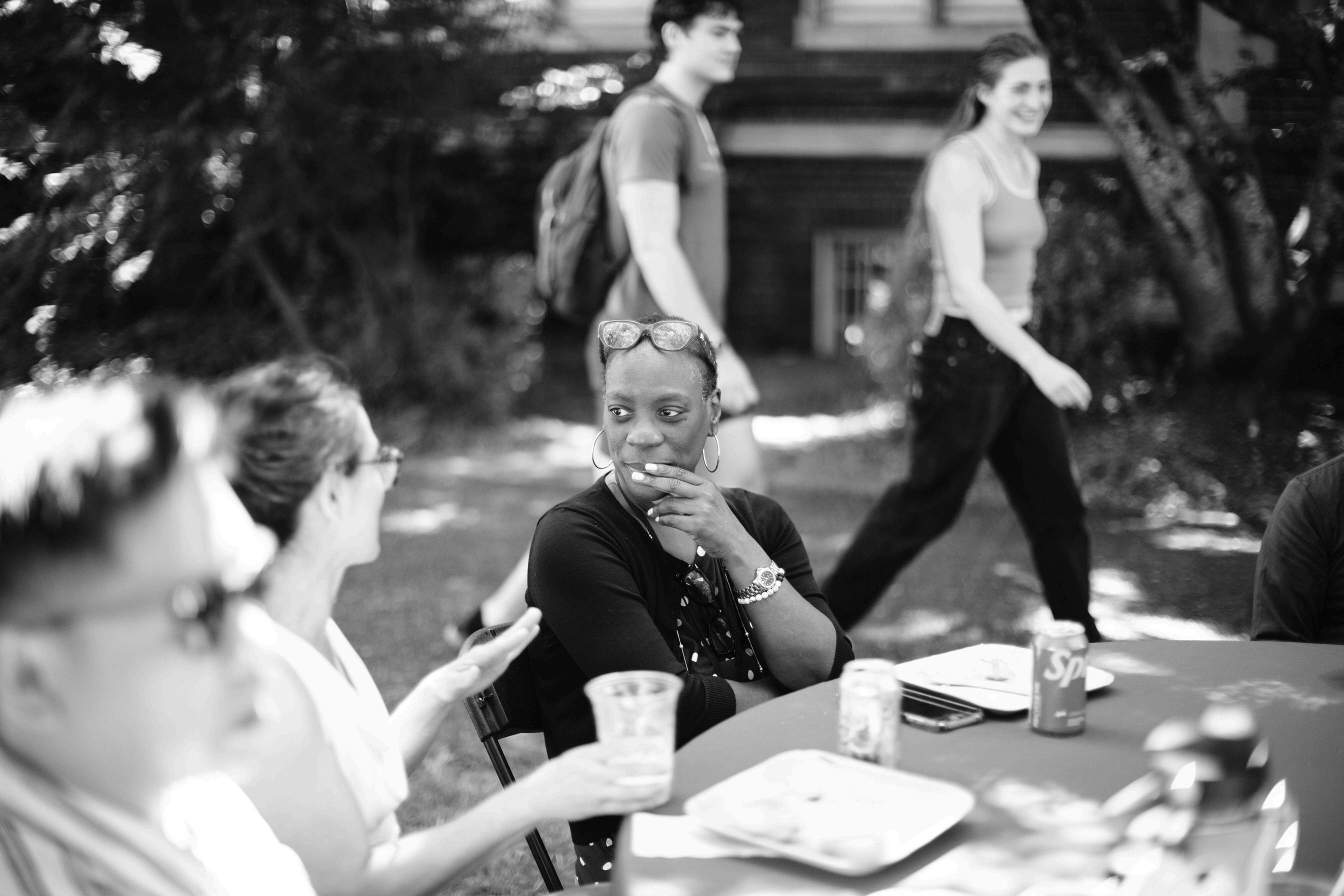
VICE-PRESIDENT & DEAN FOR INSTITUTIONAL DIVERSITY
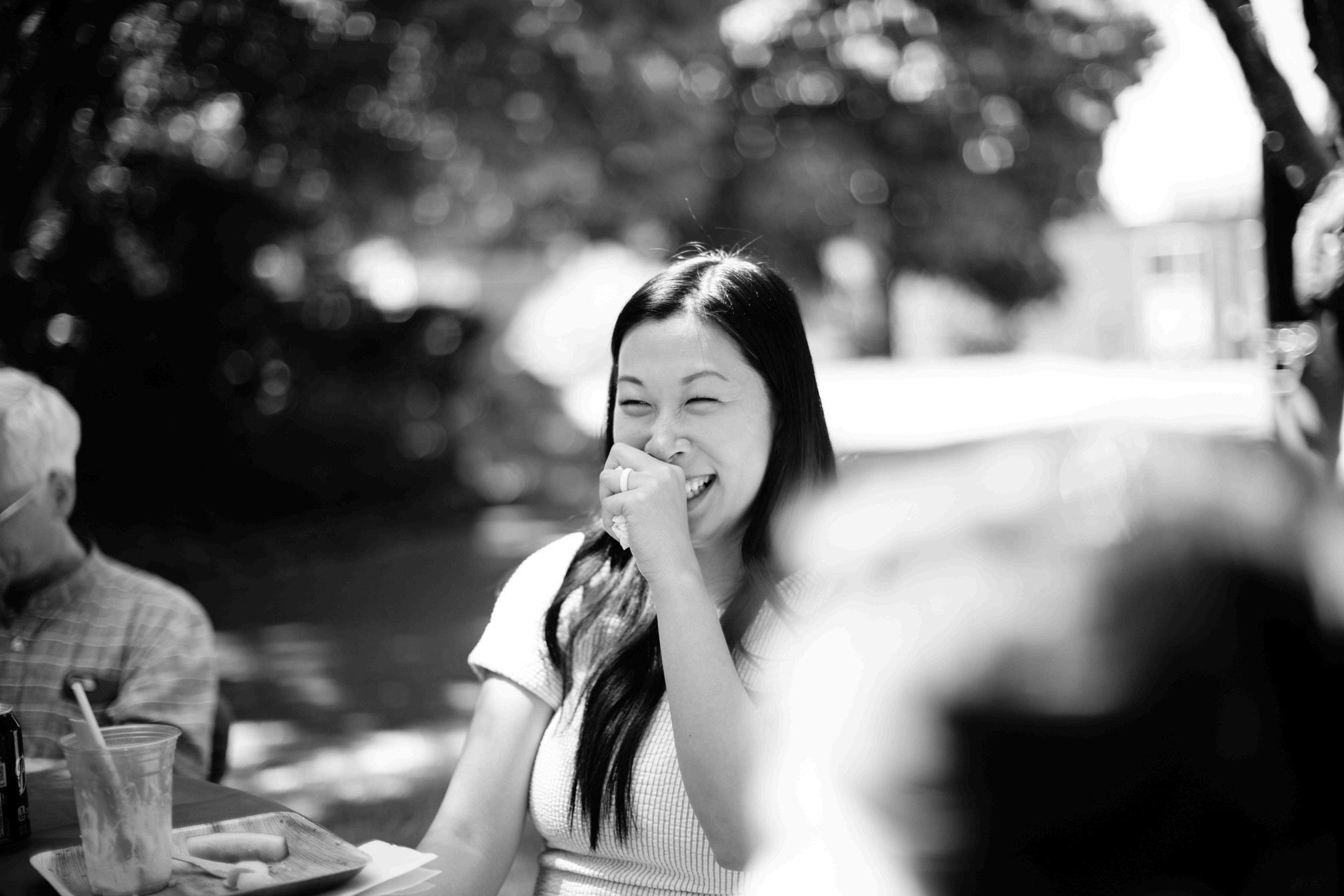

ASSOCIATE DEAN FOR INSTITUTIONAL DIVERSITY & DIRECTOR OF THE MULTICULTURAL RESOURCE CENTER
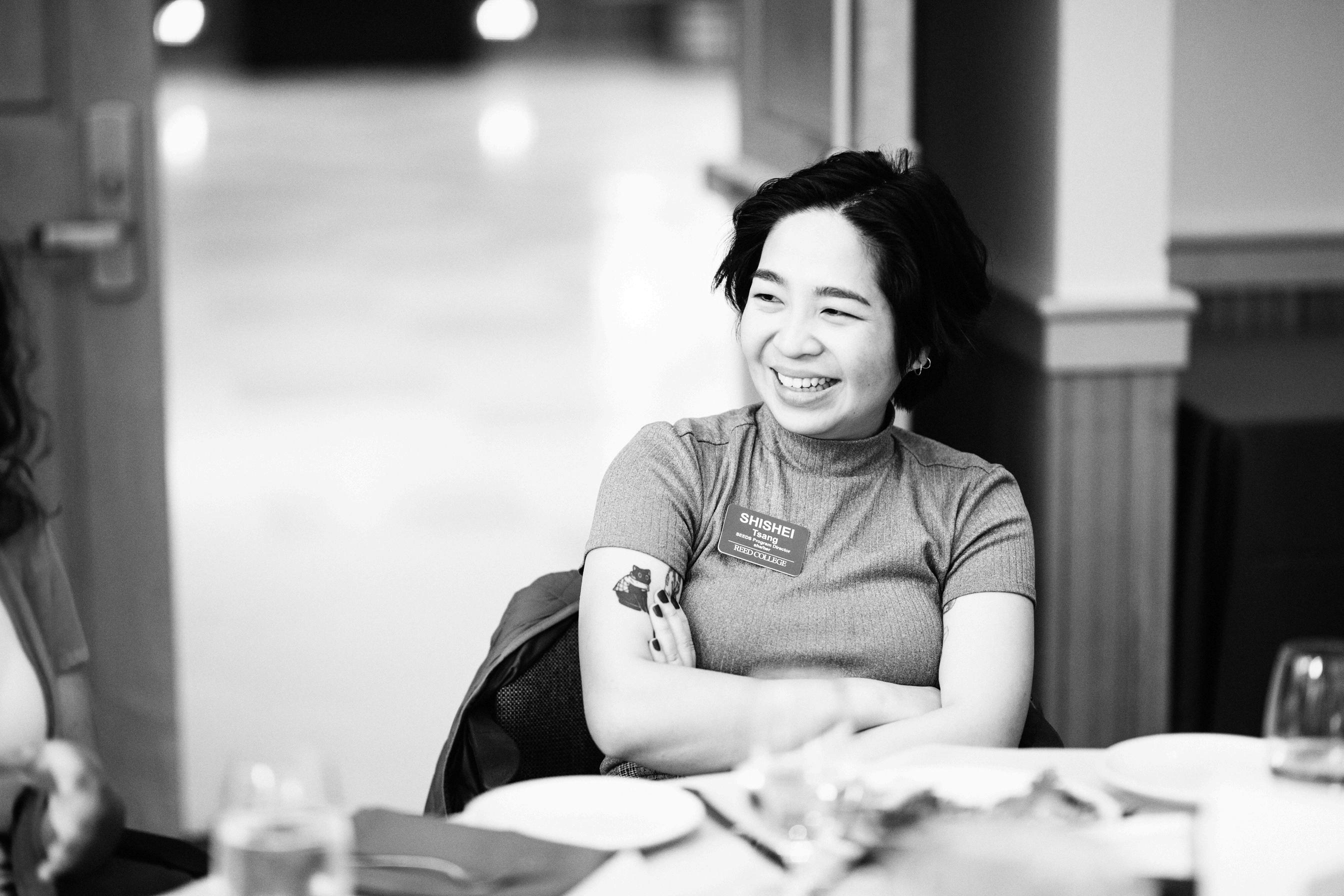
ASSOCIATE TO THE OFFICE FOR INSTITUTIONAL DIVERSITY
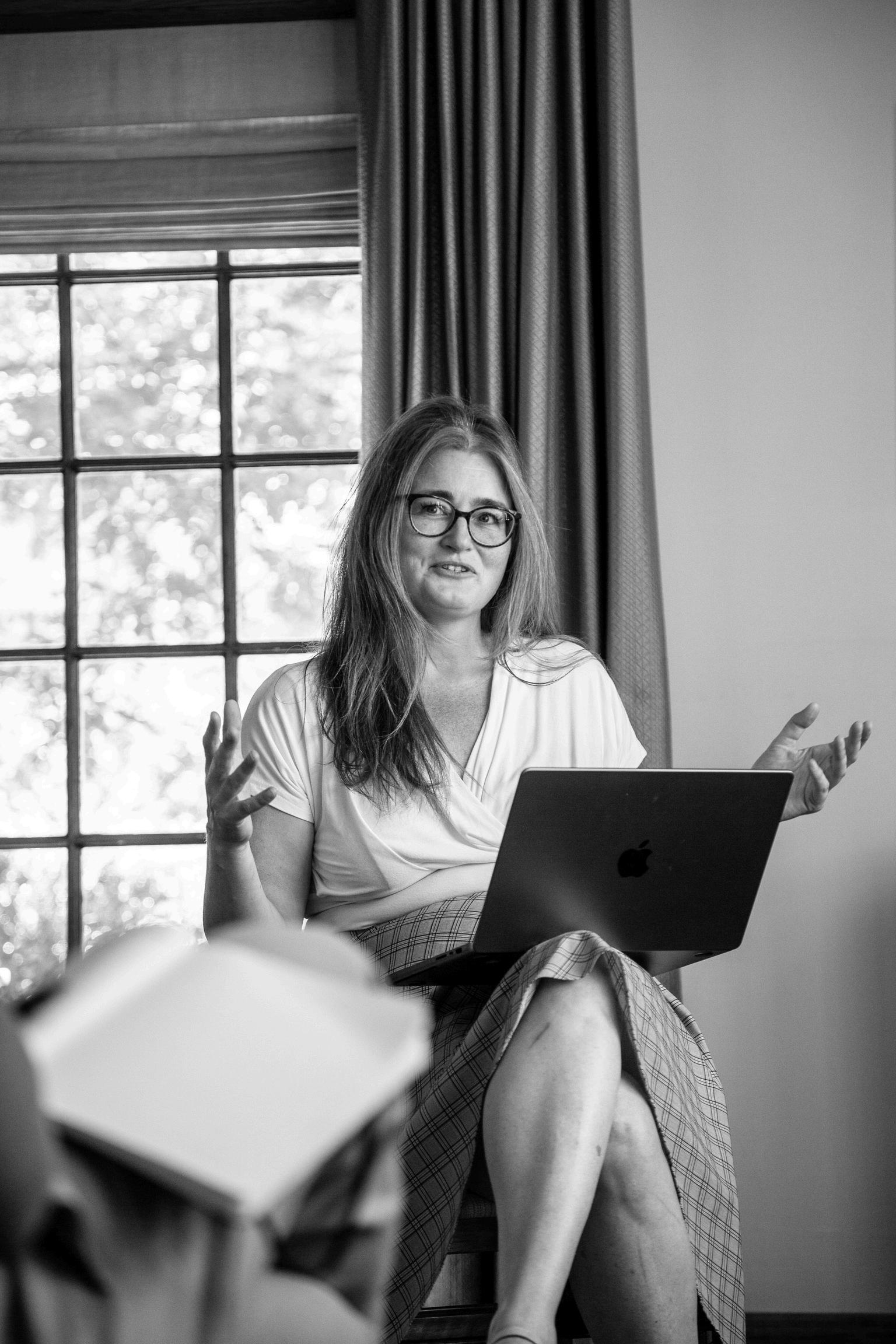
ASSOCIATE DEAN FOR INSTITUTIONAL DIVERSITY & EDUCATIONAL DEVELOPER FOR EQUITY, INCLUSION & BELONGING
PROGRAM DIRECTOR OF STUDENTS FOR EDUCATION, EQUITY & DIRECT SERVICE
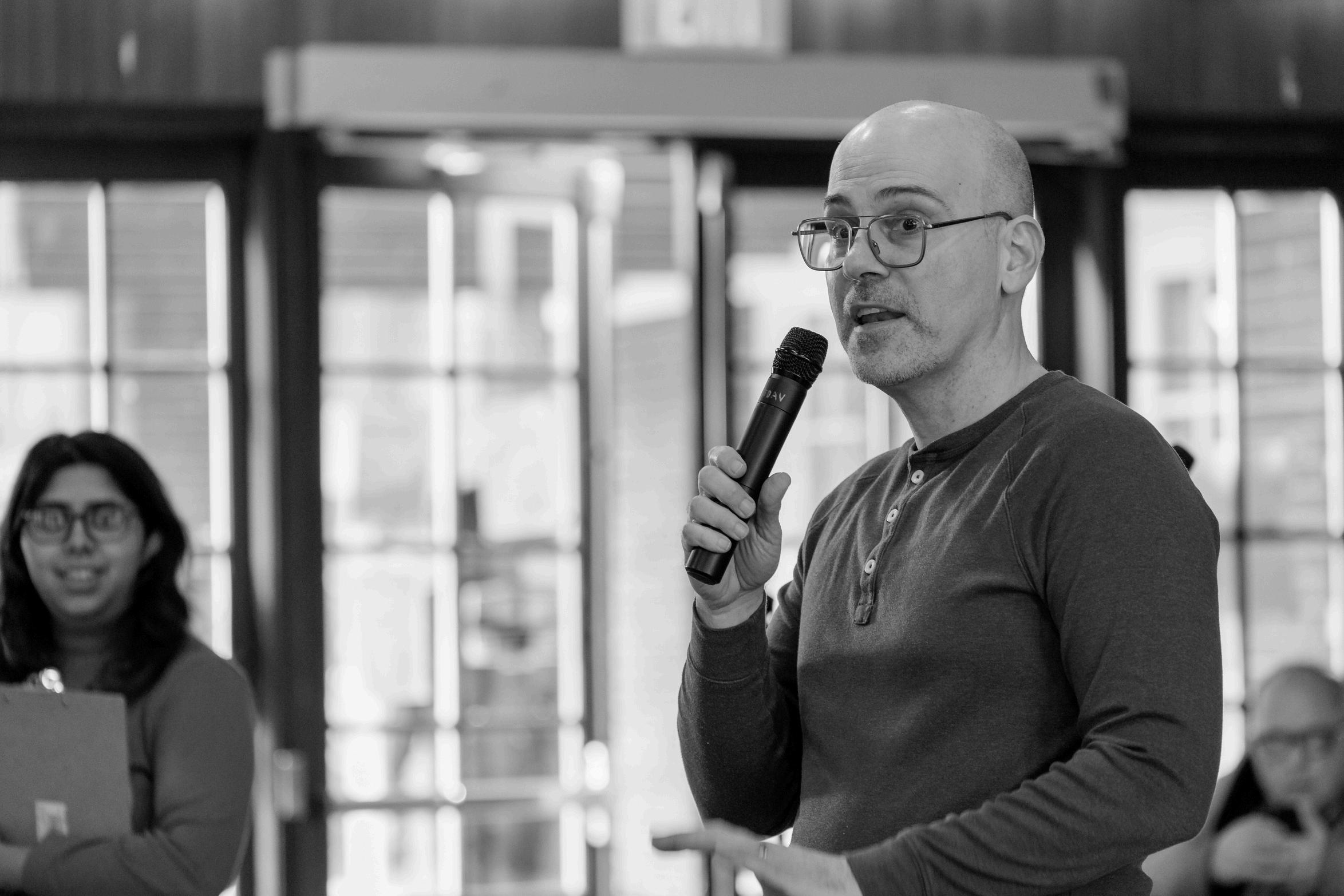
DIRECTOR OF THE CENTER FOR TEACHING & LEARNING
ONE MISSION
In pursuit of educational parity, the Division for Institutional Diversity fosters the conditions for equitable success for all students.
ONE PURPOSE
The Division for Institutional Diversity institutionalizes systemic practices for equitable student success.

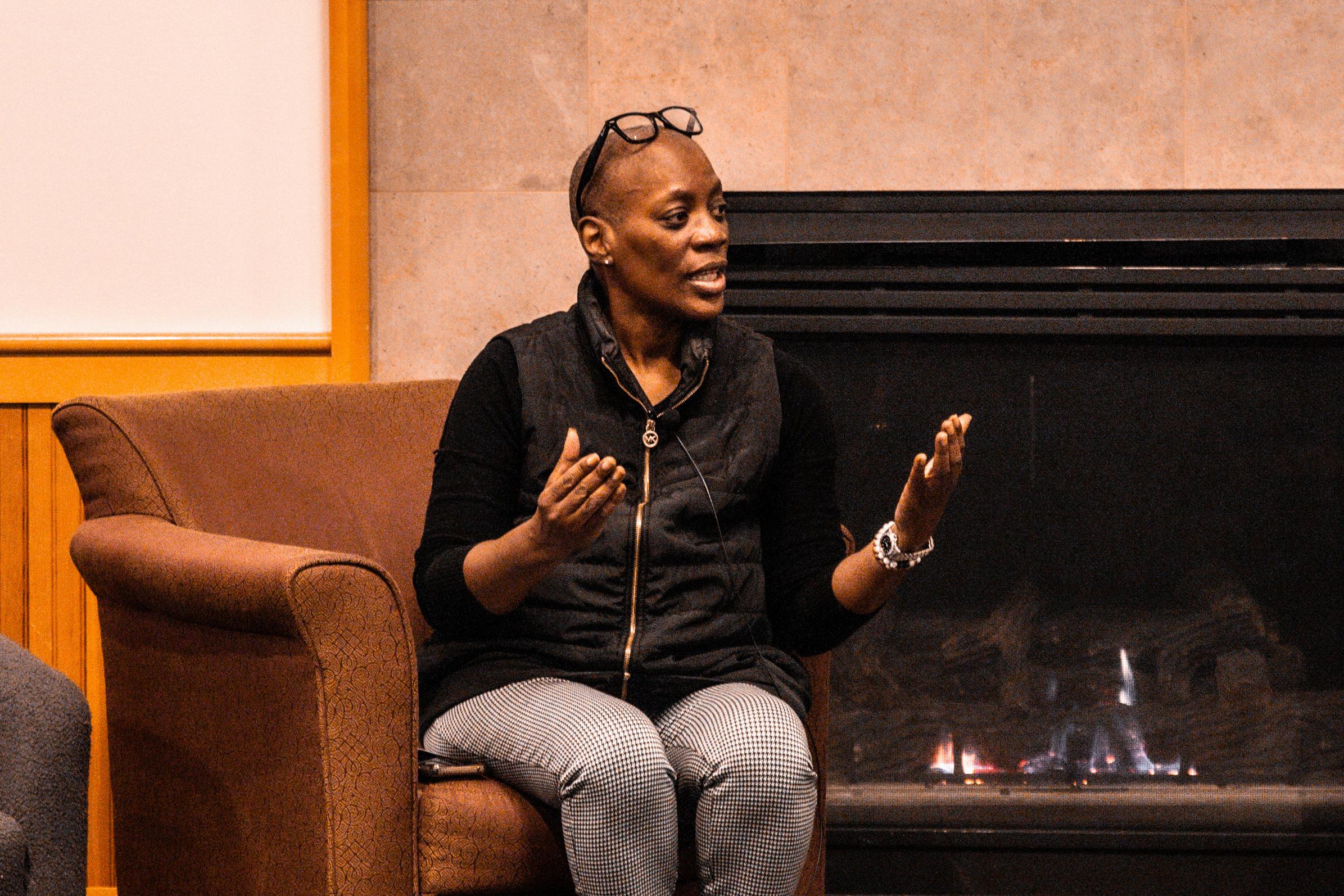
In the Fall of 2024, Institutional Diversity hosted a new ritual: Fireside Chats- an opportunity for our team to engage with the campus community on the state of our division. The gathering offered space to share updates, invite reflections, and articulate the evolving mission and priorities of our multi-unit division. The event invited faculty, staff and institutional leaders into conversation about the college’s trajectory, our collective responsibilities, and the adaptive challenges that shape our work.
Framed around the seven DEI commitments that ground our work, this ritual is a continual invitation for community partners to reflect and ask: How do we institutionalize diversity, equity, inclusion and anti-racism at Reed? What are each of our responsibilities in this collective effort? How can we call one another into this work more intentionally? Where do you see intersections between your work and the goals of the Division?

The Staff lunchrooms is a ritual that recognizes the value of creating opportunities for colleagues to come together outside of structured and high-stakes environments. For many, the primary setting where colleagues from across departments interacted is often during all-staff meetingsa gathering that, while necessary, often carries the weight of institutional decision, logistical updates, and pressing business. In times of uncertainty, where communities are most vulnerable to division, the simple act of coming together- breaking bread and engaging in thoughtful conversation offers a valuable opportunity to build community resilience. The staff lunchrooms have become a valued opportunity for staff to build relationships beyond their immediate departments, and engage in meaningful conversations with colleagues across campus.
Thanks to collaborative partnerships with the President’s Office, all members of the President’s Staff, our community gathered for 17 staff lunchrooms in the 2024–2025 academic year.
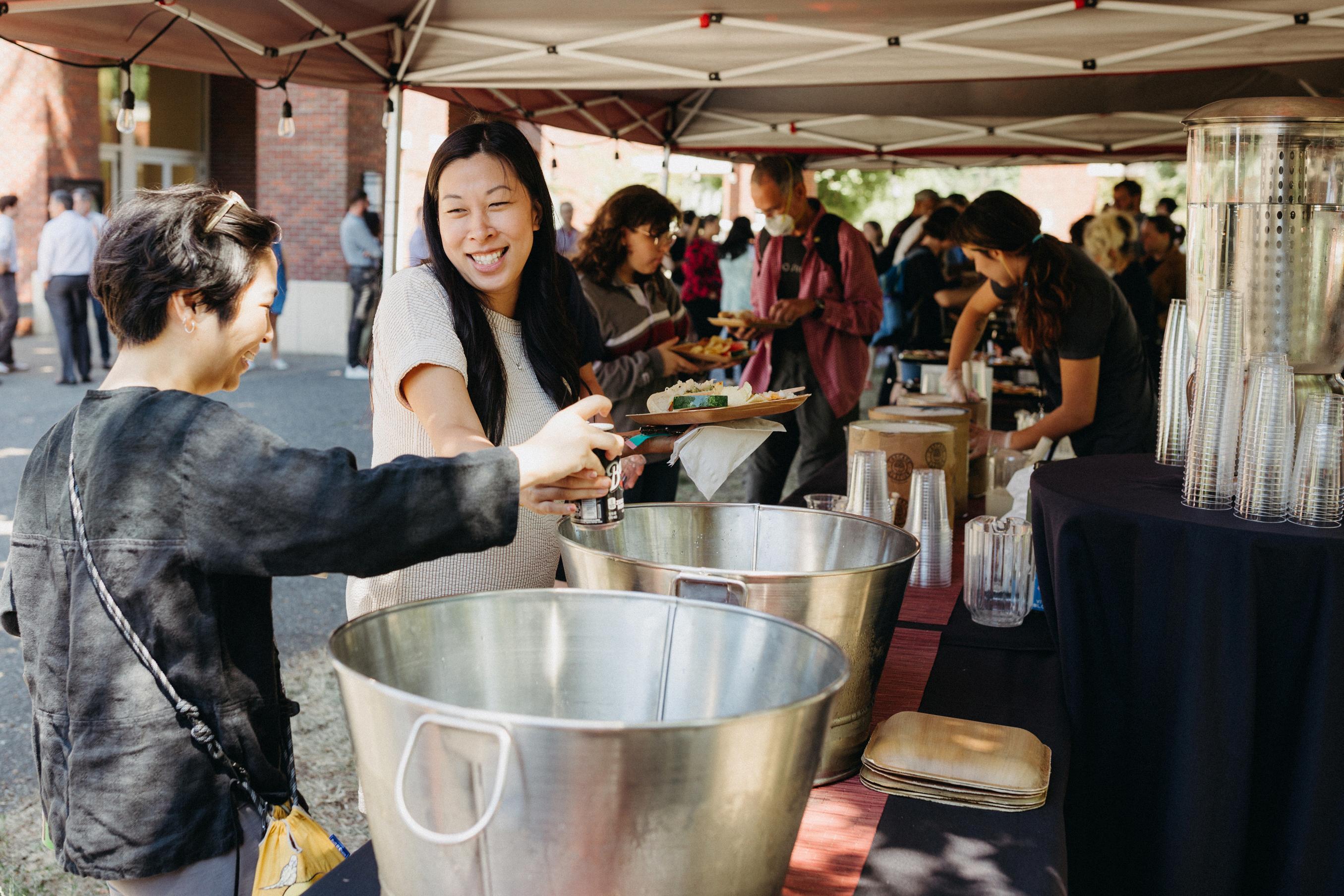
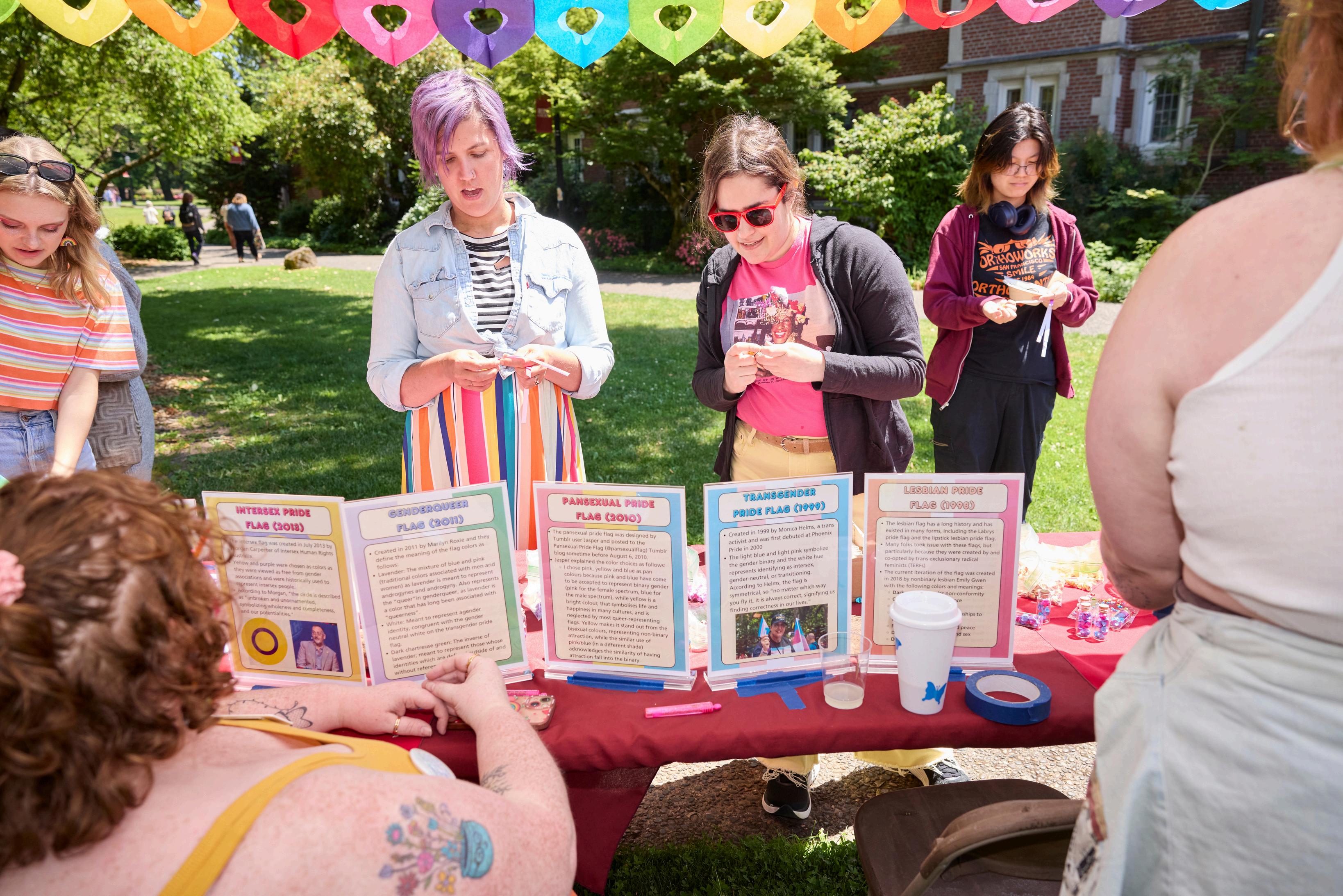
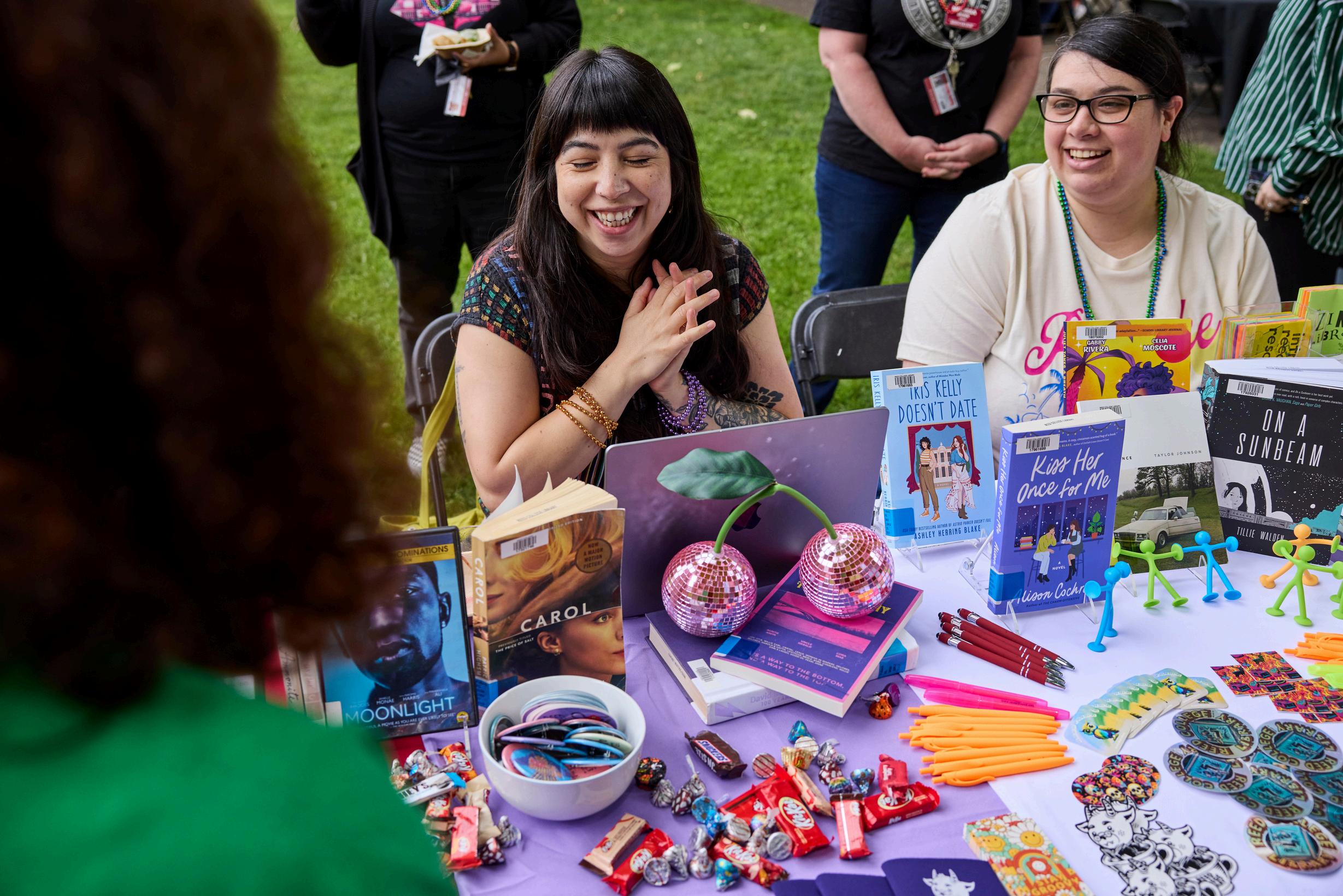
The Heritage Programming Committee is tas with organizing programs that celebrate and highlight the cultural diversity of the Reed College community. As part of a commitment to continuous improvement, the committee established a grant process in the 2024-2025 academic year. This grant emphasized their mission of fostering meaningful engagement. In addition to reviewing and supporting community-driven projects, the committee coordinated the Reed Pride Party.

This tradition- now in it’s third year, brought together offices across campus to share resources, lead crafts, and celebrate our inclusive community This event was made possible by the support of departments across campus who hosted tables, in addition to sponsorship from the President’s Office, the Division of College Advancement, and the Public Affairs Office.
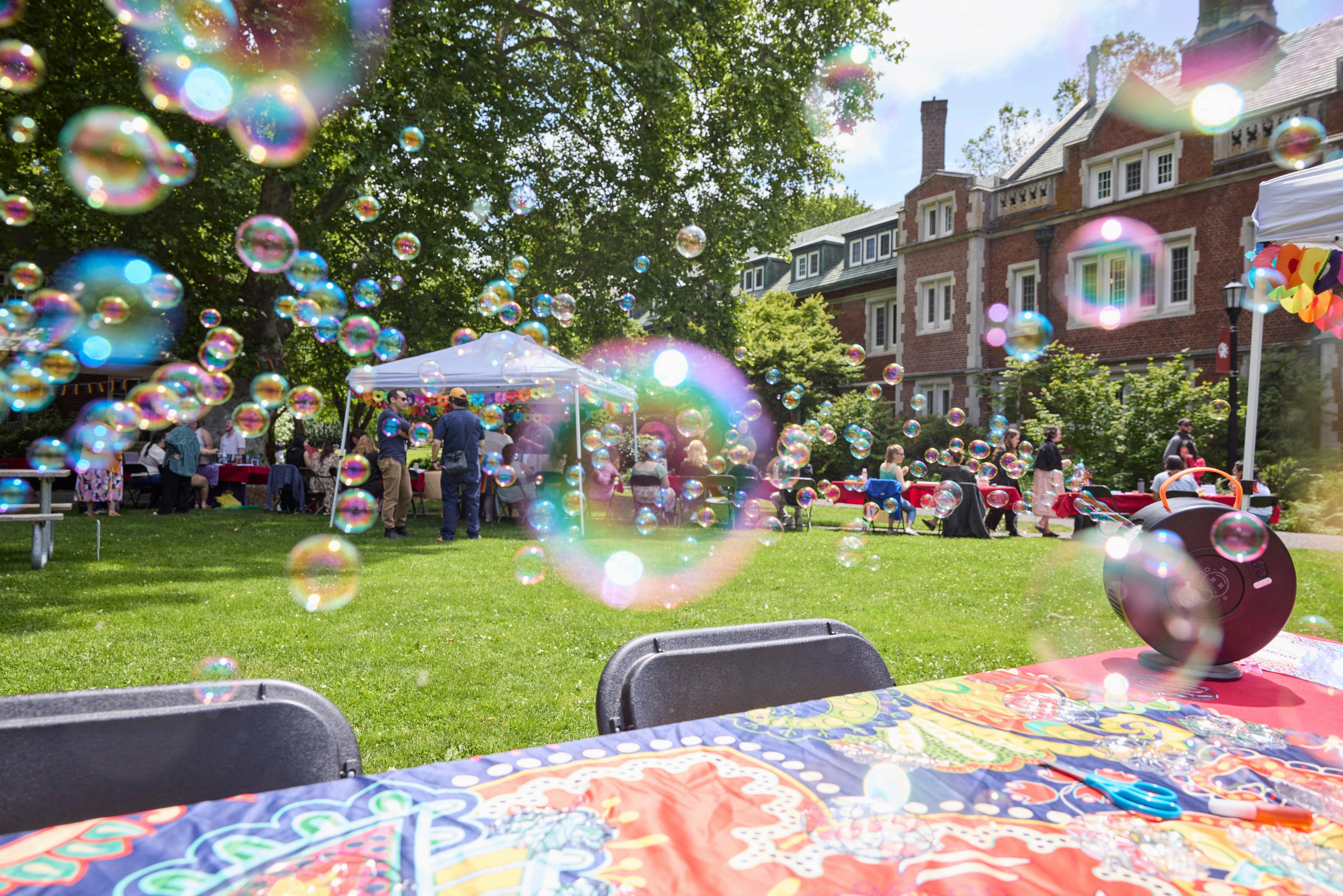


In the Fall of 2024, the Faculty and Staff Committees on Diversity underwent a provisional pause to realign the two committee’s work with the college’s strategic diversity, equity, and inclusion (DEI) priorities. Throughout the academic year, Phyllis Esposito, Vice President & Dean for Institutional Diversity, met regularly with Val Moreno, Chair of the Staff Committee on Diversity, and Kelly Chacón, Chair of the Faculty Committee on Diversity, to reimagine the committees’ roles in advancing institutional goals. Their work focused on supporting student success through inclusive pedagogy and equitable practices, and fostering a more inclusive campus community grounded in dialogue and belonging.
To honor the life and legacy of Dr. Martin Luther King Jr., our community was invited to take part in building A Beloved Community a vision not only central to Dr. King’s dream of racial justice and nonviolence, but also echoed in bell hooks’ teachings on love, liberation, and radical belonging. In a threepart series hosted by the multiple units within Institutional Diversity, our campus was invited to reflect, serve, and engage actions that continue the urgent work of creating a campus community where all can belong, thrive and flourish.
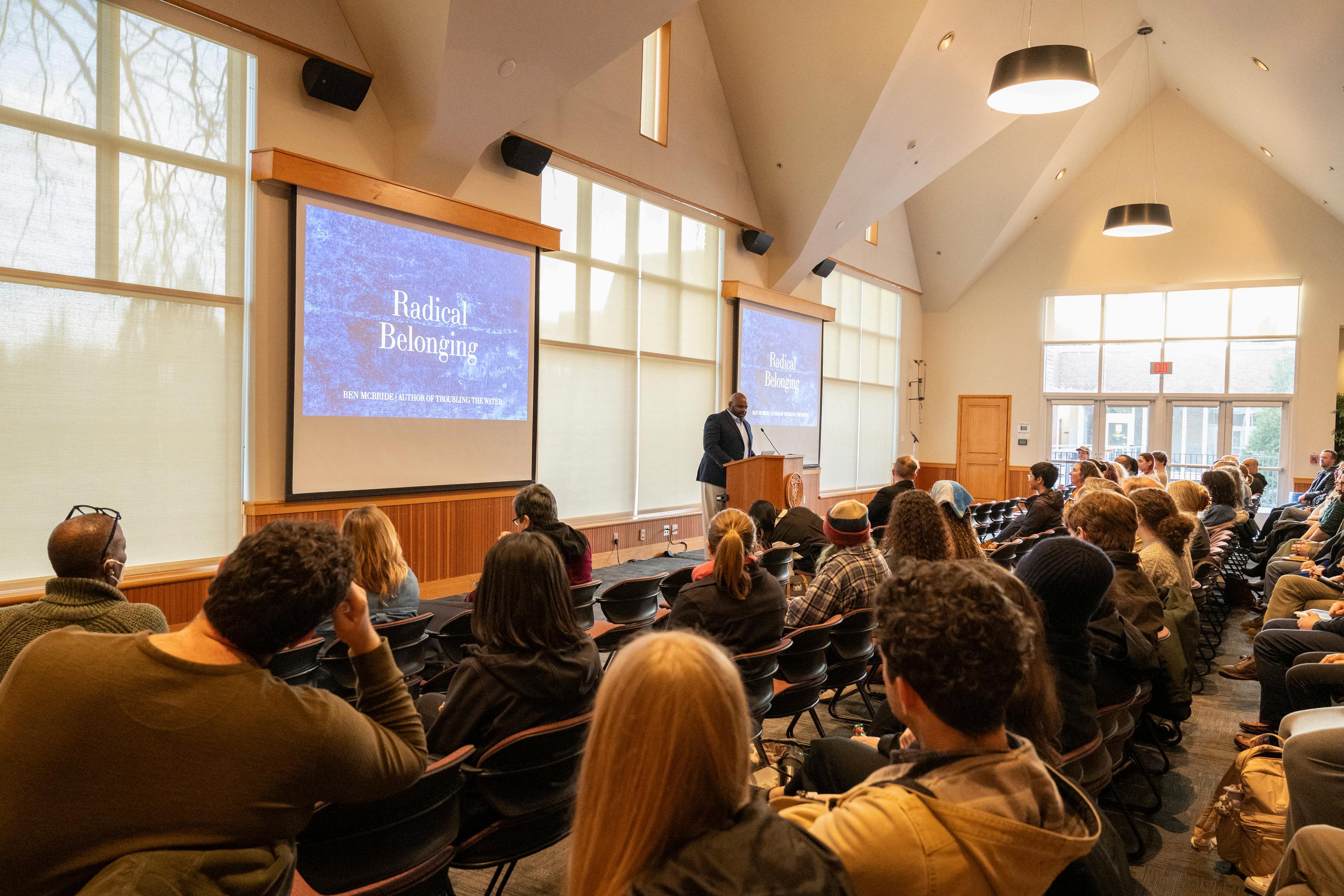
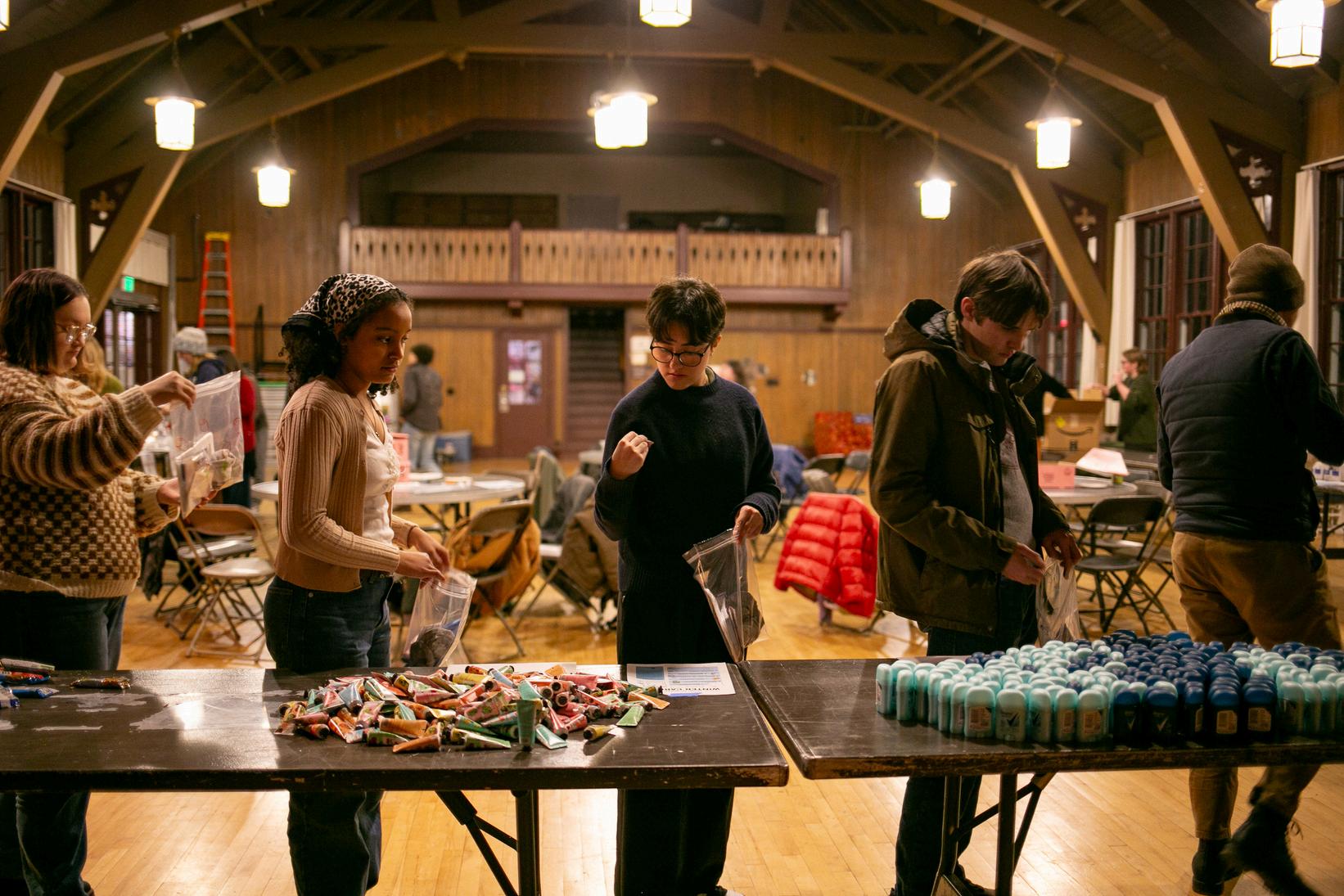
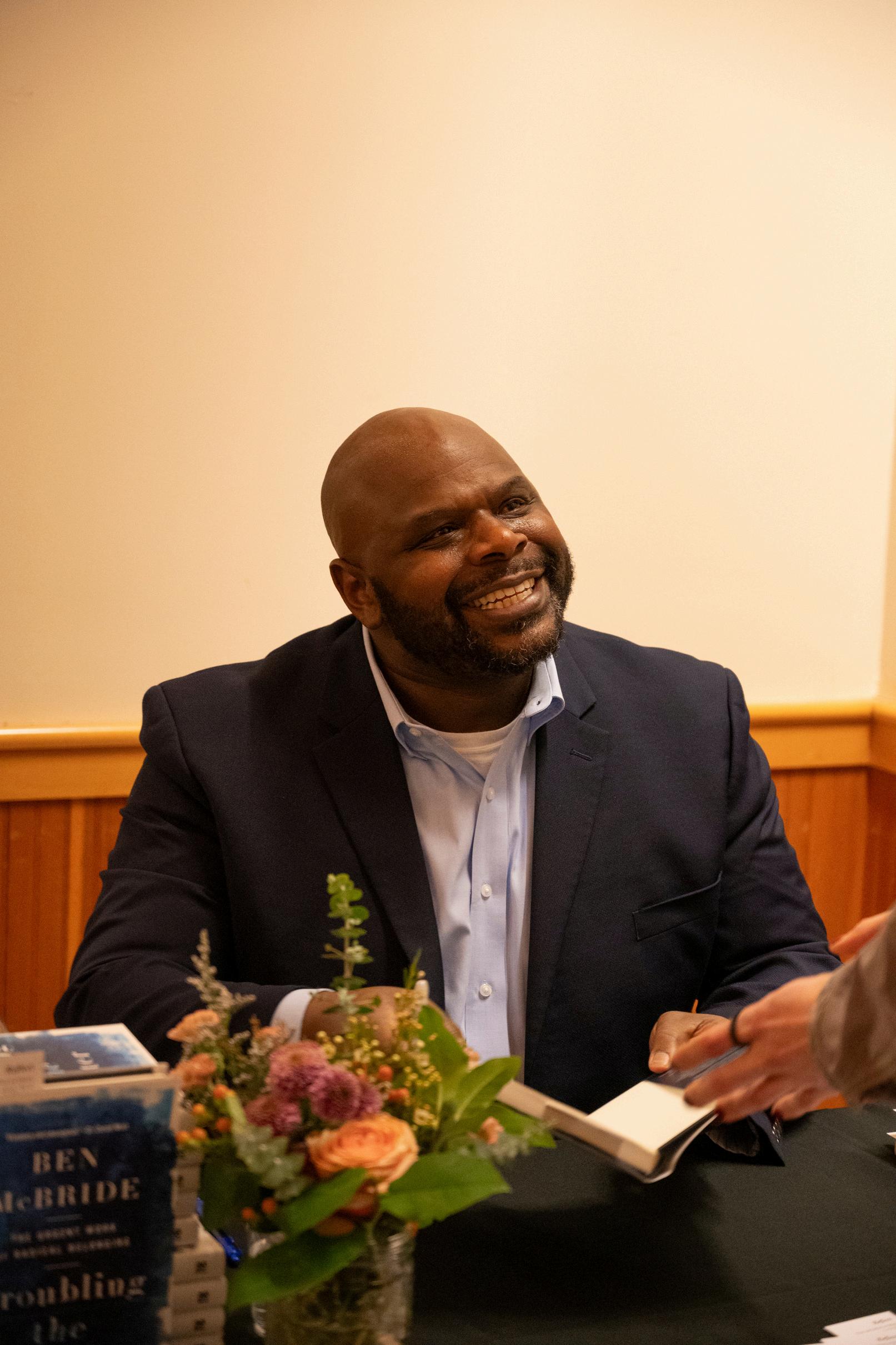

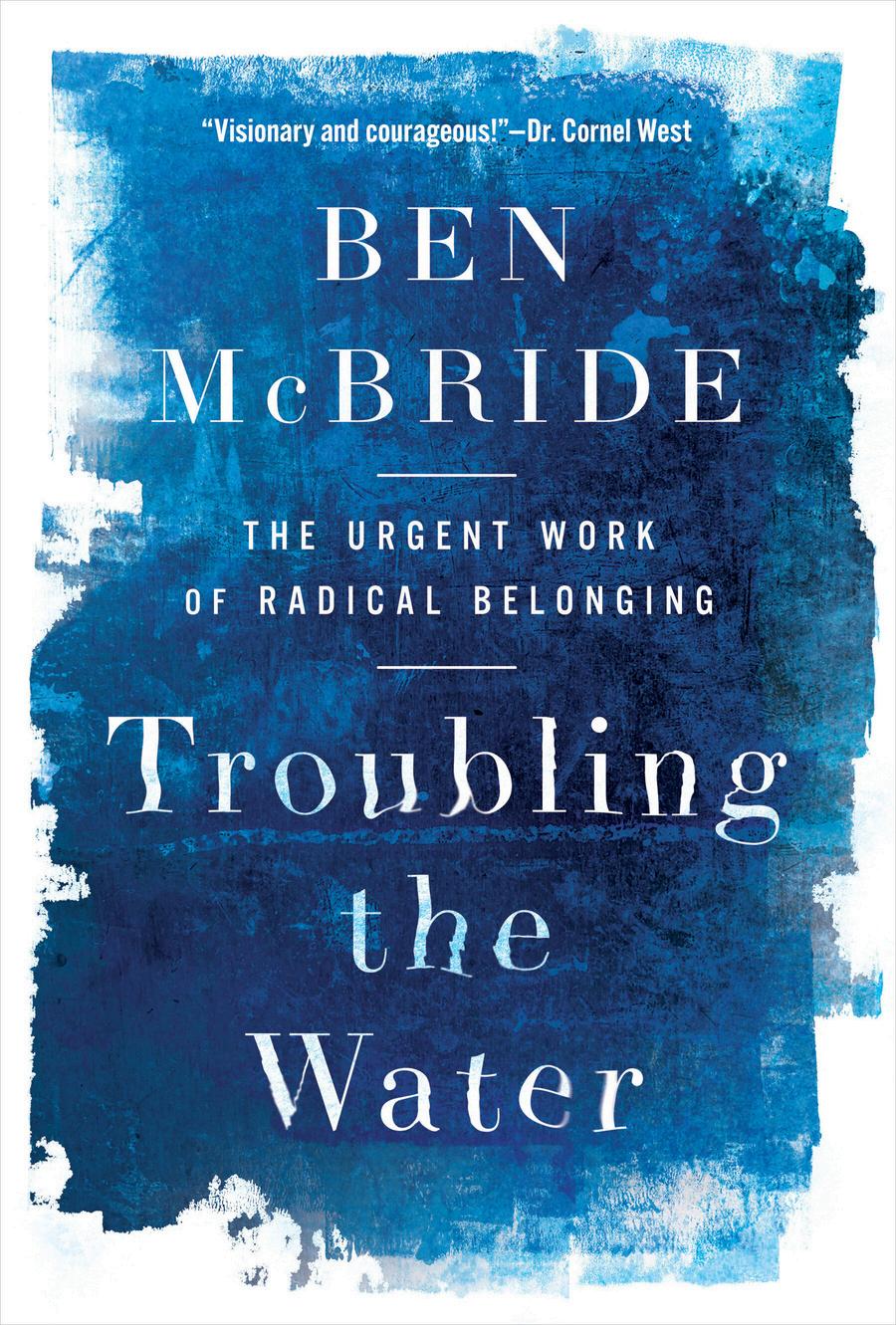
During Paideia, Students for Education, Equity & Direct Service (SEEDS) offered space for community members to gather and listen to Dr. King’s 1967 speech, “Racial Justice and Nonviolent Resistance”. Attendees reflected with both the audio and written transcript of the speech and were invited to consider King’s teachings on nonviolence as both a moral and strategic tool in the journey towards racial justice.
A community service event hosted by SEEDS invited campus community members to assemble winter care kits, each including essential items and snacks for individuals facing harsh winter conditions. Over 200 winter care kits were donated to the Blanchet House a Portland nonprofit serving unhoused and food-insecure individuals. This event was grounded in the belief, echoed by both Dr. King and bell hooks, that justice and love must be expressed through action.
The MLK Series culminated in a keynote lecture by Rev. Ben McBride, spiritual leader, peace activist, and author of New York Time’s best seller Troubling the Water: The Urgent Work of Radical Belonging. In this keynote, McBride reflected on the practice of radical belonging as an opportunity to expand Dr. King’s vision of inclusion and support the creation of what bell hooks called a beloved community. Drawing from his experiences as a longtime organizer in the Bay Area, McBride invited the audience to consider how spiritual courage and community healing are essential to building inclusive institutions. A book signing followed the lecture.
Copies of McBride’s book were available for campus community members, made possible by the MRC Book Club, a collaborative effort between the Multicultural Resource Center, the Library and the Office for Student Life. (Learn more about the MRC Book Club on page 32).
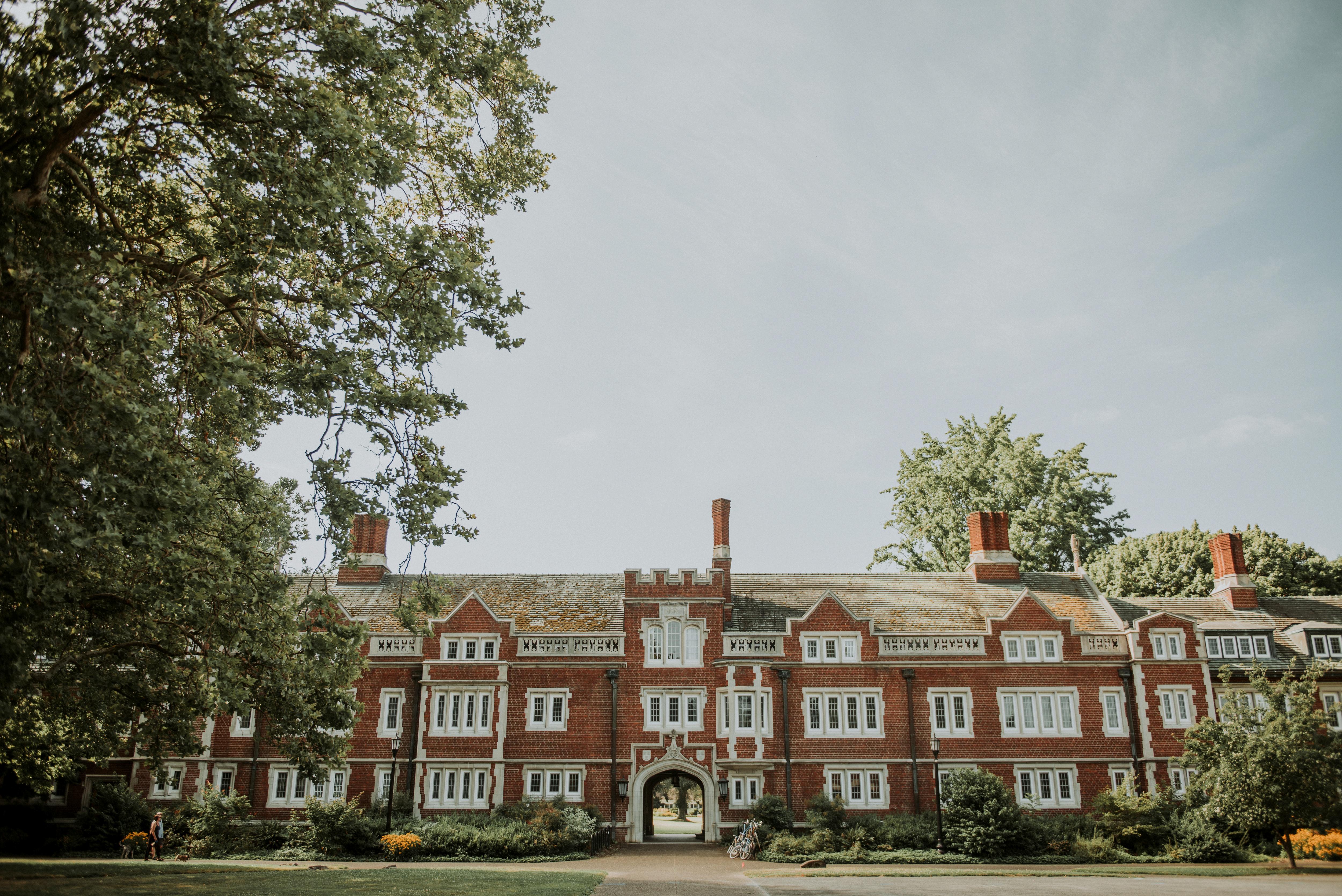

The Institutional Diversity Mission Grant is an opportunity for our division to deepen its partnership across campus and invest in the cocreation of a community where equity, inclusion and belonging are integral to the student experience. Projects selected demonstrate strong alignment in one of our division’s priority:
Projects that are aligned with OID’s mission:
Amplify diverse perspectives, experiences and identities within our communities
Foster a campus culture where every individual feels valued, respected and included Engage the broader Reed community- students, staff and faculty
Leverage diverse expertise and perspectives by collaborating across different academic and administrative departments
Demonstrate impact sustainability with consideration of alternative funding sources to support ongoing projects and future iterations.
In the 2024-2025 academic year, our division awarded 9 OID Mission Grants
Program support for Comparative Race & Ethnicity Studies Committee, Chaired by Radhika Natarajan
The CRES Colloquium Series is a vital academic and community-building initiative that provide opportunities for staff, faculty, and students to come together to engage with the study of race and ethnicity, and to build community. This year, the Institutional Diversity Grant supported two events in this series.
The first event, A Song in Movement, featured a documentary screening, performance, and conversation with Asian American artist-activists Quyên Nguyen-Le, Nobuko Miyamoto, and Derek Nakamoto. The documentary connects themes of identity, representation, Asian American and Black Power movement, mixed race/interracial family, and community building.
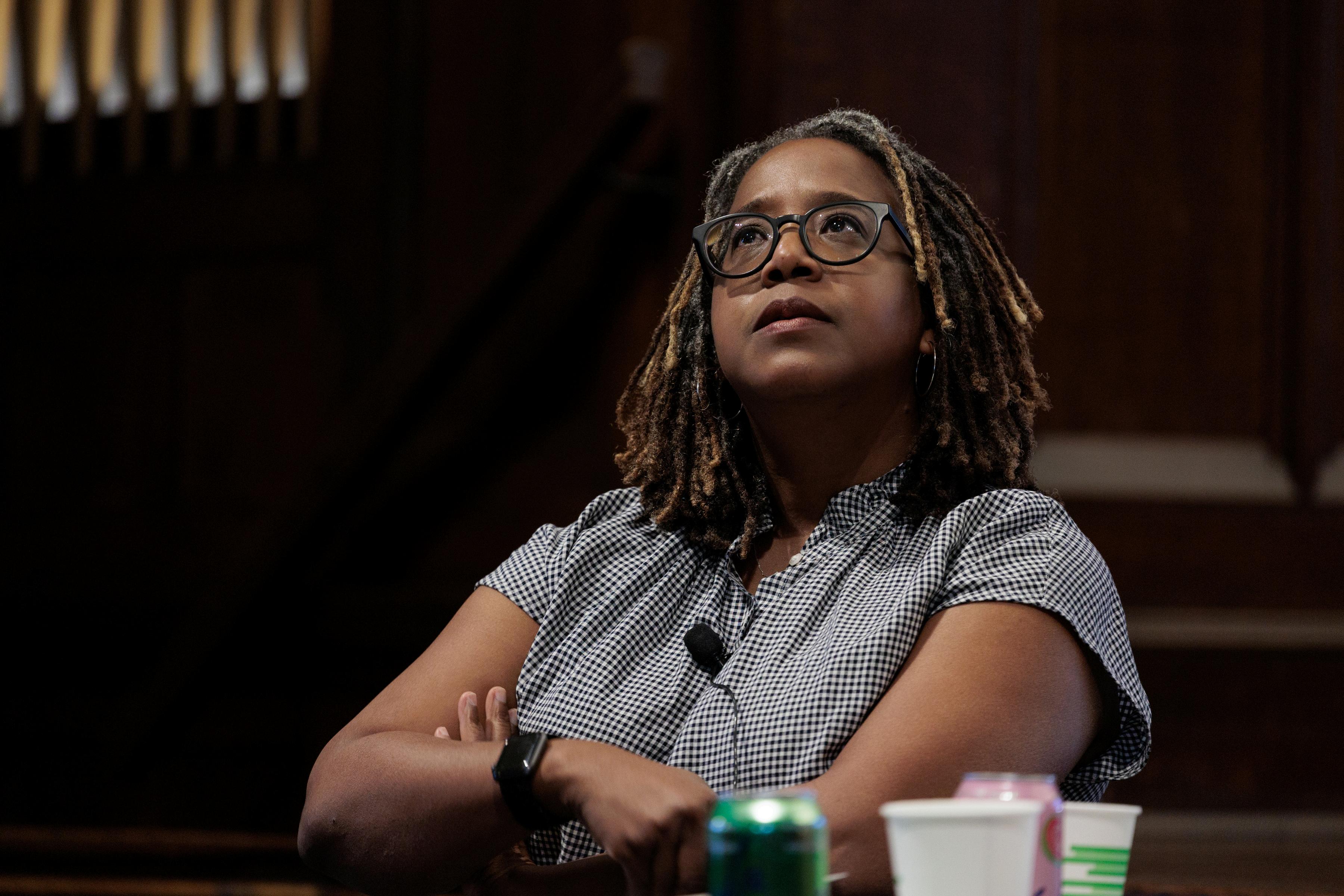
The second event was a public-facing book talk with Shani Evans, former Consortium for Faculty Diversity Fellow at Reed College, and author of We Belong Here. The book explores the experiences of Black Portlandians in the wake of gentrification of historically black neighborhoods.
Both events amplified marginalized voices and created space for interdisciplinary dialogue across campus and community.



Program support for the Sex, Gender and Sexuality (SGS) Studies Committee, chaired by Mariela Daby
The 2025 Sex, Gender, and Sexuality (SGS) Studies Symposium is a signature event advancing critical conversations about gender, race, and power The Institutional Diversity Mission Grant supported a public lecture by Professor Kelly Dittmar of Rutgers University, addressing gender and race in the 2024 U.S. presidential election. The lecture included an interactive workshop for faculty, staff, and students to engage deeply with her research on women’s political power. With broad community participation, the project fostered interdisciplinary learning and supported initiatives that enhance campus dialogue on social justice and representation.
Programming support for Bora Yoon
This interactive lecture demonstration featured internationally renowned Carnatic flautist, Shashank Subramanyam and percussionist, Parupalli S. Phalgun. Held in April 2025, the event explored the structures of Indian classical music in conversation with Western music theory, enriching the curriculum of MUS210 and MUS205. Designed to broaden students’ musical understanding and cultural fluency, The event amplified global musical traditions and highlighted diverse ways of knowing, while fostering nclusive collaboration across campus and with the broader Portland music community.
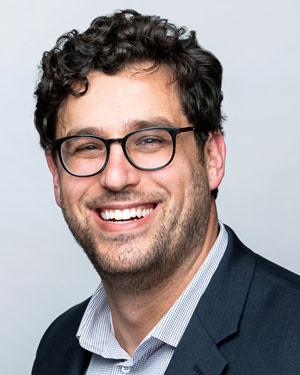
“The informal conversat key part of the Shabbat allowed students to actu to know one another in t context of a communal e with shared work whet ritual, culinary, or both students in particular ex comfort with the ways in the meal made space for their own practice ”
- Chauncey Diego Fra Handy, Assistant Prof of Religion and Huma
This Spring, the Institutional Diversity Grant supported Programming support for Chauncey Diego Francisco Handy
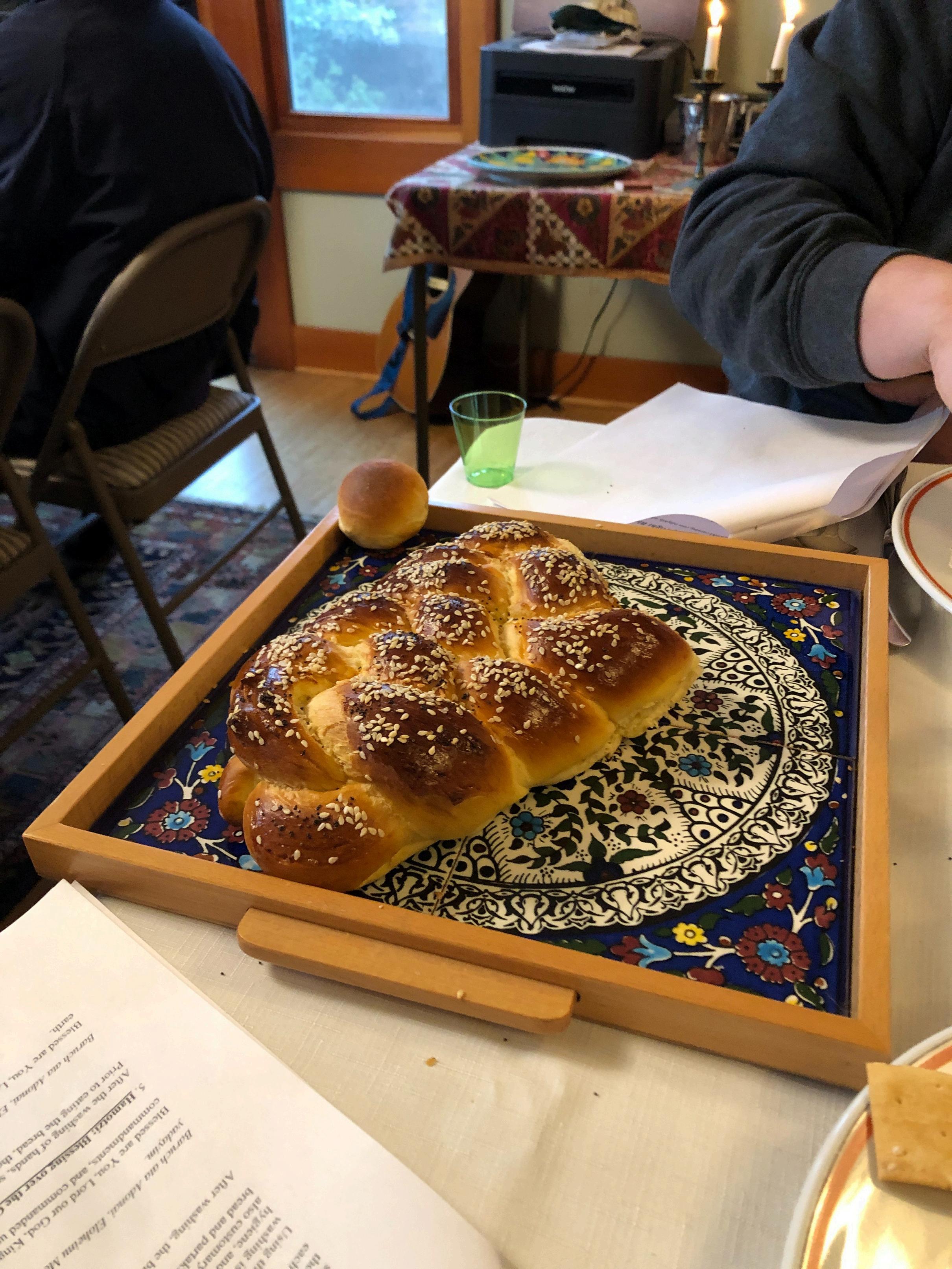
Program support for Shohei Kobayashi
“When that storm comes” is a powerful and socially engaged concert held in the fall of 2024, exploring themes of climate justice, collective resilience, and global interconnectedness. Featuring the west coast premiere of Shruthi Rajasekar’s Whose Names Are Unknown and the world premiere of Portland-based African American composer and educator, Judy A. Rose’s Ode to the Wind, the program highlighted works by composers of color that speak to environmental crisis, worker solidarity, and community care. The event included a week-long residency by Rajasekar with class visits and a public Q&A, deepening student engagement. Through strategic campus and community outreach, the project fostered interdisciplinary collaboration and inspired dialogue at the intersection of art, justice, and identity.
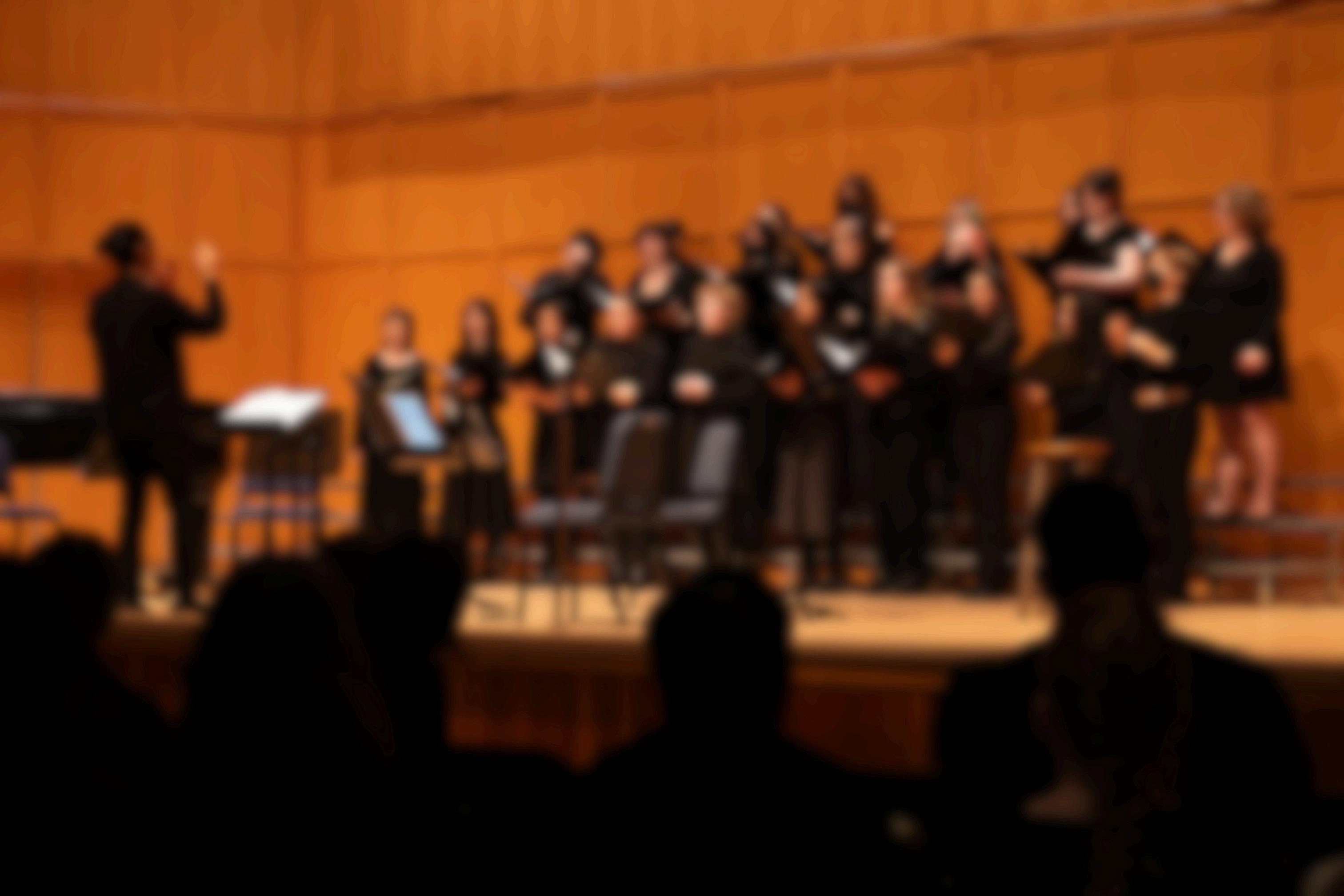
Professional Development Opportunity for Mariela Daby
Mariela Daby’s participation in the Alan Cornell U.S. Campus Faculty Seminar at Yad Vashem in Jerusalem provided an immersive opportunity to deepen understanding of Holocaust history and contemporary antisemitism, with a focus on their relevance to U.S. college campuses. Her engagement with this program was an opportunity to inform her teaching and curriculum development, including plans to enhance existing courses and design new offerings addressing Holocaust and antisemitism studies. The seminar was also an opportunity for her to strengthen faculty and student conversations on these critical topics. The program was fully subsidized by Yad Vashem. The Institutional Diversity Mission Grant covered additional travel and living expenses.
Program development opportunity for Crystal Chaw and Kendra Walker
In the Fall of 2022, the Reed biology Lecturer and Lab Coordinators (LLCs), with the support of the Biology department faculty, Science Outreach, Institutional Diversity, Student Life, Academic Support, the Dean of Faculty, and the Office of the President, began a three-year pilot Learning Assistant program. This program was incorporated into both lab and lecture elements of Topics in Biology. Results have been positive, offering extended resources to enrolled students (such as peerteaching in labs/lectures and study sessions led by Learning Assistants), and professional development and pedagogy experience for learning assistants. Furthermore, the learning assistants provide faculty with the support to more easily incorporate pedagogical theory (e.g., active learning strategies, trying new labs, etc.) into practice.

As the pilot program entered its final year, the biology department is thinking about how to sustain the program long-term. The Institutional Diversity Mission Grant supported two Biology department lab & lecturer coordinators, Crystal Chaw and Kendra Walters’s attendance at the 2024 International Learning Assistant Conference. This was an opportunity to advance the Biology department’s Learning Assistant program. Chaw and Walters used this opportunity to explore similar programs at other institutions, engage in pedagogical techniques to engage introductory science students, and learn strategies for recruitment, training, and mentorship of learning assistants.
Program support for Mark Buford
Friday@4 concerts are a popular and longstanding program at Reed that consistently attract students, staff, faculty, and members of the neighborhood community. A special Friday@4 concert held during Black History Month, featured works exclusively by Black composers and performed by Reed’s private music instruction faculty. Unlike typical Friday@4 performances by students, this program highlighted challenging and historically underrepresented repertoire, requiring the expertise of professional musicians. By showcasing the rich contributions of Black composers and amplifying their work, the event elevated diverse perspectives to foster inclusive cultural engagement.

Program development opportunity for students in Reed’s oSTEM chapter Project proposal by Kayla Johnston
Students from Reed’s chapter of Out in Science, Technology, Engineering and Math (oSTEM) attended the 14th Annual oSTEM Conference, the nation’s largest gathering of LGBTQ+ scientists. Held locally, the conference provided a timely and cost-effective opportunity for expanded student involvement, particularly as Reed’s chapter enters its second year and builds capacity. The conference offered critical networking, mentorship, and professional development opportunities, empowering LGBTQ+ students to connect with others who share their lived experiences in STEM. This initiative built upon the Institutional Mission Grant Award from last year, which helped catalyze the formation of Reed’s nationally recognized oSTEM chapter.


The Social Justice Research and Education Fund supports paid student internships, in close collaboration with college offices and academic departments, for projects or research that focuses on community engagement, civic engagement, equity, and/or social justice.
In the 2024-2025 academic year, the Social Justice Research & Education Award funded 9 projects.
The Social Justice Research & Education Fund was established in 2017 through the generous donations from the Dudley T. Dougherty Foundation, Kathy and Alex Martinez '73, Reed alumni trustee, and the Paul K. Richter Memorial Fund, Bank of America, N A , Trustee
The Social Justice Research & Education Fund awarded nine projects that offered meaningful student internship opportunities during the Summer of 2024 and into the Fall of 2024.

This project, led by Sara Rosenberger, Student Accounts & Loan Coordinator, focused on expanding Reed College’s digital financial wellness offerings by integrating CashCourse, an interactive online financial education platform, to increase accessibility for students unable to attend in-person workshops or events. Christina Davis, a student majoring in neuroscience, supported the full implementation process, setting up the platform, creating user guides, designing infographics and budgeting tools, and redesigning Reed’s Financial Wellness webpage all with a keen awareness of the barriers that many students, especially those from marginalized backgrounds, face in accessing financial literacy resources.
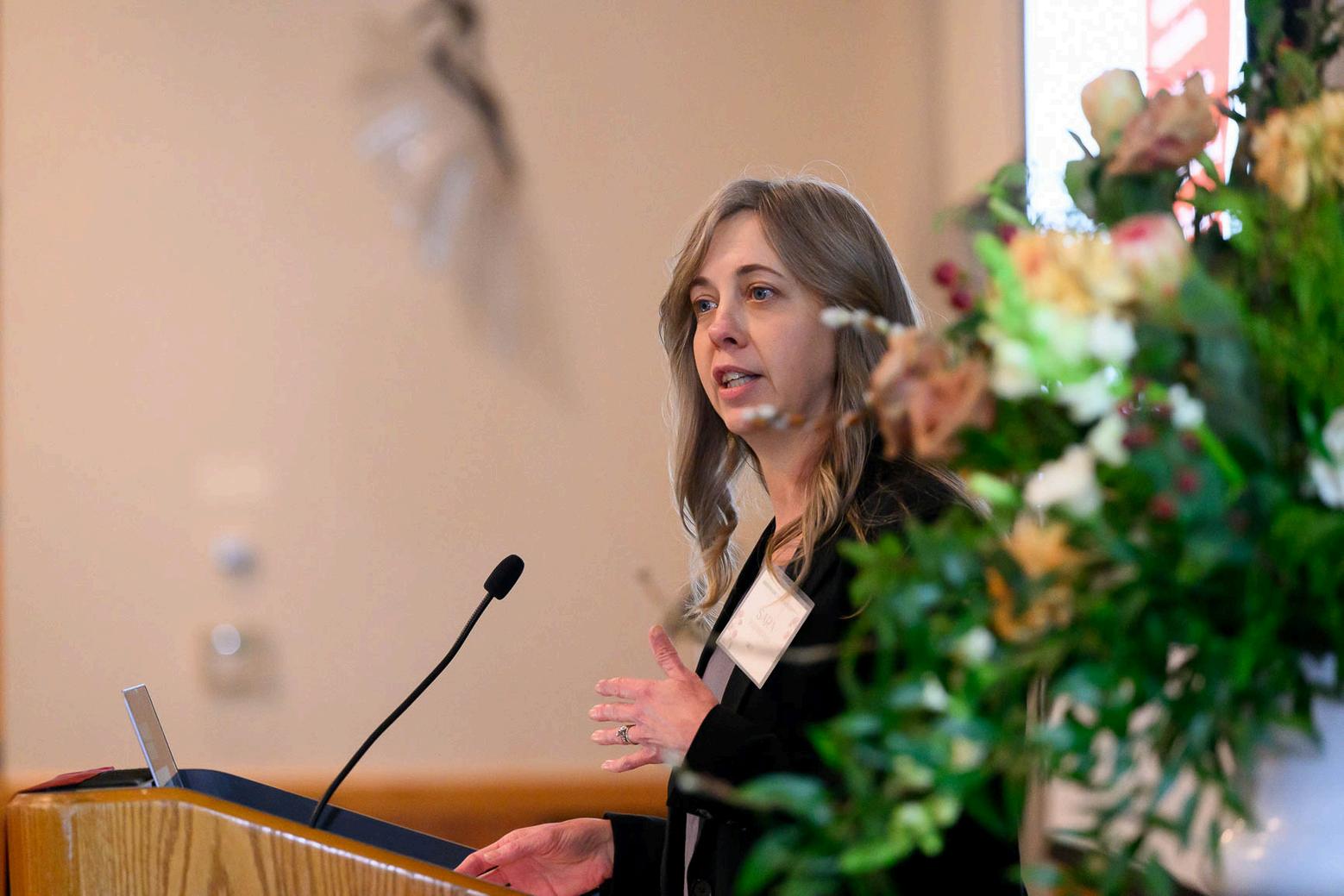
Rooted in Davis’s lived experiences and social justice values, the project was guided by the principle that financial literacy is a critical equity issue. Davis reflected, “I realized that community engagement is not just about providing resources, but ensuring that those resources are accessible, inclusive, and nonintimidating.” Her work not only increased the visibility and usability of financial tools on campus but also modeled a thoughtful, student-centered approach to engagement. By making financial education more inclusive and accessible, this project advances the College’s Student Success Plan and reinforces the role of financial literacy as a powerful tool for promoting equity, retention, and long-term student wellbeing.
“Theimplementationof CashCoursehasbeena meaningfulstepforwardin achievingourprogram’s objectives especiallythe goalofofferingonline financialeducation beginninginthe2024–25 academicyear.Christina’s leadershipwas instrumentalinthe project’ssuccess.She broughtaunique perspectivetotherole, rootedinherself-taught knowledgeand genuineenthusiasmfor helpingherpeersnavigate financialchallenges”
-SaraRosenberger,Student Accounts&LoanCoordinator
This project builds on a 2023 Social Justice Research & Education Fund (SJREF) initiative by Whitney Kuma-Perry ‘ 25, who piloted a peer-to-peer financial coaching program to equip students with essential financial literacy skills.
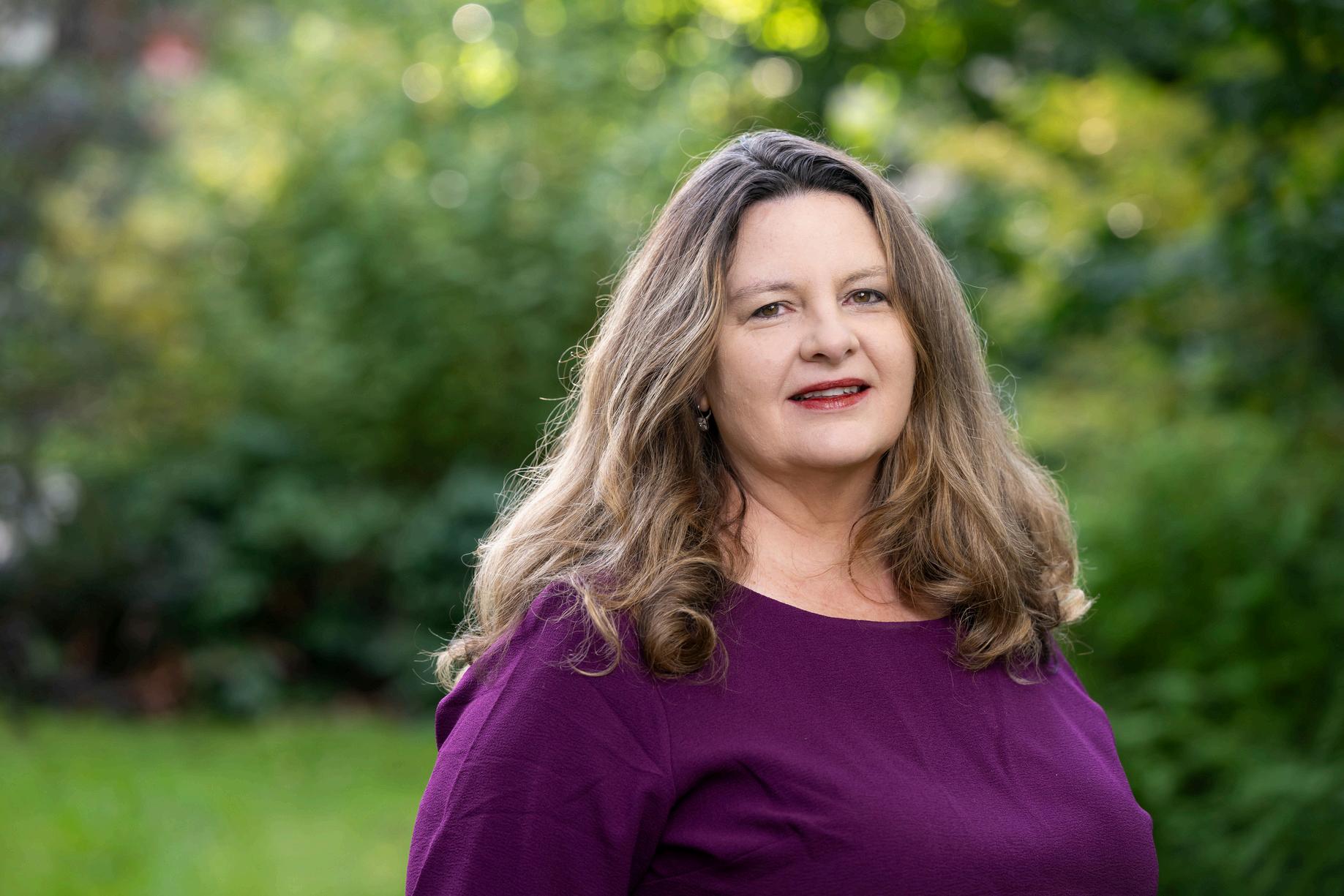
“Havingconductedmany focusgroupsinmycareer, Ifoundthatpartnering withastudentfacilitator andcollaboratoraddeda meaningfuldimension deepeningour understandingofhow studentsfindtheirplace andconnectwithothers.”
-MeghanWieters,Directorof Assessment&Strategic Iniatives
project aimed to understand how Reed students rience community, belonging, and culturally affirming es. Through a series of focus groups, this project invited ents to define these concepts in their own terms, share enges, and suggest pathways toward a more inclusive supportive campus culture. According to Meghan Wieters, Director of Assessment & Strategic Initiatives for the Student Life Division, these student-led discussions revealed the deep connection between students’ academic success and their access to meaningful community, safe spaces, and a sense of being valued. Carys René John ‘25 reflected that this experience not only deepened her understanding of social equity at Reed, but also empowered her leadership and research skills. She shares that many of her own experiences as a student of color were echoed by others, reinforcing the importance of qualitative research in surfacing systemic issues that quantitative data alone can overlook. In navigating the challenges of facilitating diverse focus groups, she developed techniques for emotionally sensitive engagement and inclusive conversation.
The initiative had a dual impact: it generated vital qualitative data that adds depth and human context to existing institutional assessments, and it created opportunities for students particularly those from historically marginalized backgrounds to voice their lived experiences.
This project demonstrates the power of student-driven research to both inform institutional decision-making and cultivate student leadership. Its findings will support the development of new interventions in Student Life programming and provide a model for future initiatives that prioritize equity, voice, and community at Reed.
The Reed Science Outreach program supports over ten student-led teams that teach subjects ranging from neuroscience to physics to hundreds of Portland-area students. Recognizing the need for consistent, inclusive teaching practices especially for student teachers who identify as neurodivergent, BIPOC, and LGBTQI+ this project, led by Siira Rieschl, Science Outreach Program Manager, supported the development of a comprehensive Student Handbook on Equitable Best Practices, grounded in Universal Design for Learning (UDL).
Anna Spollen ‘25 supported this project by synthesizing past student research, feedback from STEM organizations, and current classroom experiences into a cohesive, evolving handbook. The project included pilot-testing a smaller summer camp handbook during pre-camp training and a three-week lesson series, followed by a fall training session for over 40 student teachers. The training featured engaging methods such as rotations of teaching stations and discussions on learning stages, receiving very positive feedback from participants
“One of the most important lessons I’velearnedthroughtheinternshipis that learning is a collaborative process. Every student and teacher comes from a different background, but through the implementation of equitable teaching practices it’s easy and enriching to create inclusive spacesoflearning.
-AnnaSpollen‘25 2024SJREFIntern
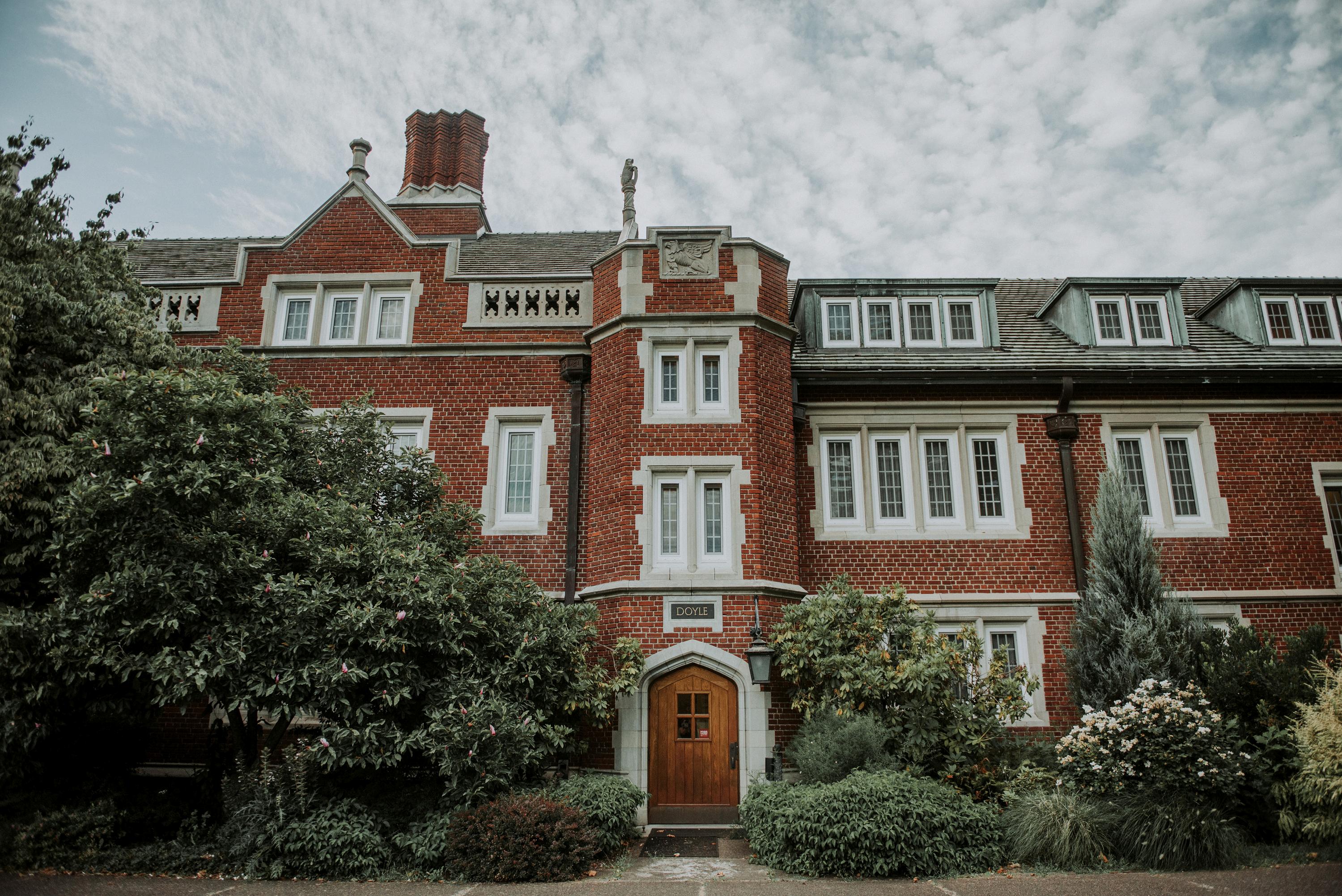

By strengthening feedback systems, this project led by Crystal Chaw, Biology Lecturer and Lab Coordinator, offered one pathway for faculty to better respond to student needs and foster a stronger sense of belonging, especially for students navigating challenges to their STEM identity. Using qualitative coding and large language models, Isabella Jupiter ‘25 supported Chaw in analyzing hundreds of student comments from course evaluations. By identifying common themes, the project contributed to the long-term redesign of teaching evaluations to align more closely with shared equity goals and inclusive pedagogy.
Jewel Colitre ‘25 developed infographics, curating art installations, and hosting drop-in hours to educate her peers about the function and importance of the IRB. This project, led by Sameer ud Dowla Khan, Professor of Linguistics and current IRB Chair, and Kayla Johnston, Faculty Administrative Coordinator and IRB Coordinator, had a goal of demystifying the IRB process and increased awareness of its role in creating a safe, ethical environment for human research.
This project builds on a 2023 Social Justice Research & Education Fund (SJREF) initiative supported by Mia Huynh ‘ 24
In order to improve the accessibility of digital course materials used in classes at Reed, Beth Platte, Associate Director of Instructional Technology Services, initiated this project in response to upcoming federal Title II regulations that will impact digital accessibility campus-wide Recognizing the importance of a coordinated institutional response, the project focuses on broader research on digital accessibility practices in course design, as well as benchmarking approaches at peer institutions. Catherine Hoyle ‘25 laid the groundwork for future campus-wide education, support, and implementation of inclusive digital practices. Their findings informed the spring 2025 rollout of accessibility resources through Instructional Technology Services.
In her role as the Engagement Manager for ‘Community for Accessibility Resources and Disability Support’ (C.A.R.D.S.), and a member of the Accessibility Committee, Hoyle brought invaluable life and leadership experience to the project. Her perspective ensured that student needs remained central to the planning process, reminding the team that technical compliance alone is insufficient without usercentered design. This project not only increased Reed’s institutional readiness for federal compliance, but also demonstrated the power of student-staff partnerships in shaping equitable academic environments.
“Thisprojectsignificantlyshapedmy understandingofdigitalaccessibility anditsroleinsocialjustice.Working onthisinitiativedeepenedmy understandingofTitleIIregulations andhowtheyimpactReed,givingme insightintoinstitutionalbarriersto accessibilityandhowtoaddressthem. Thisinternshiphasreinforcedmy commitmenttopursuingacareerin accessibilityandinclusivedesignafter graduation.”
-CatherineHoyle‘25,2024SJREFIntern
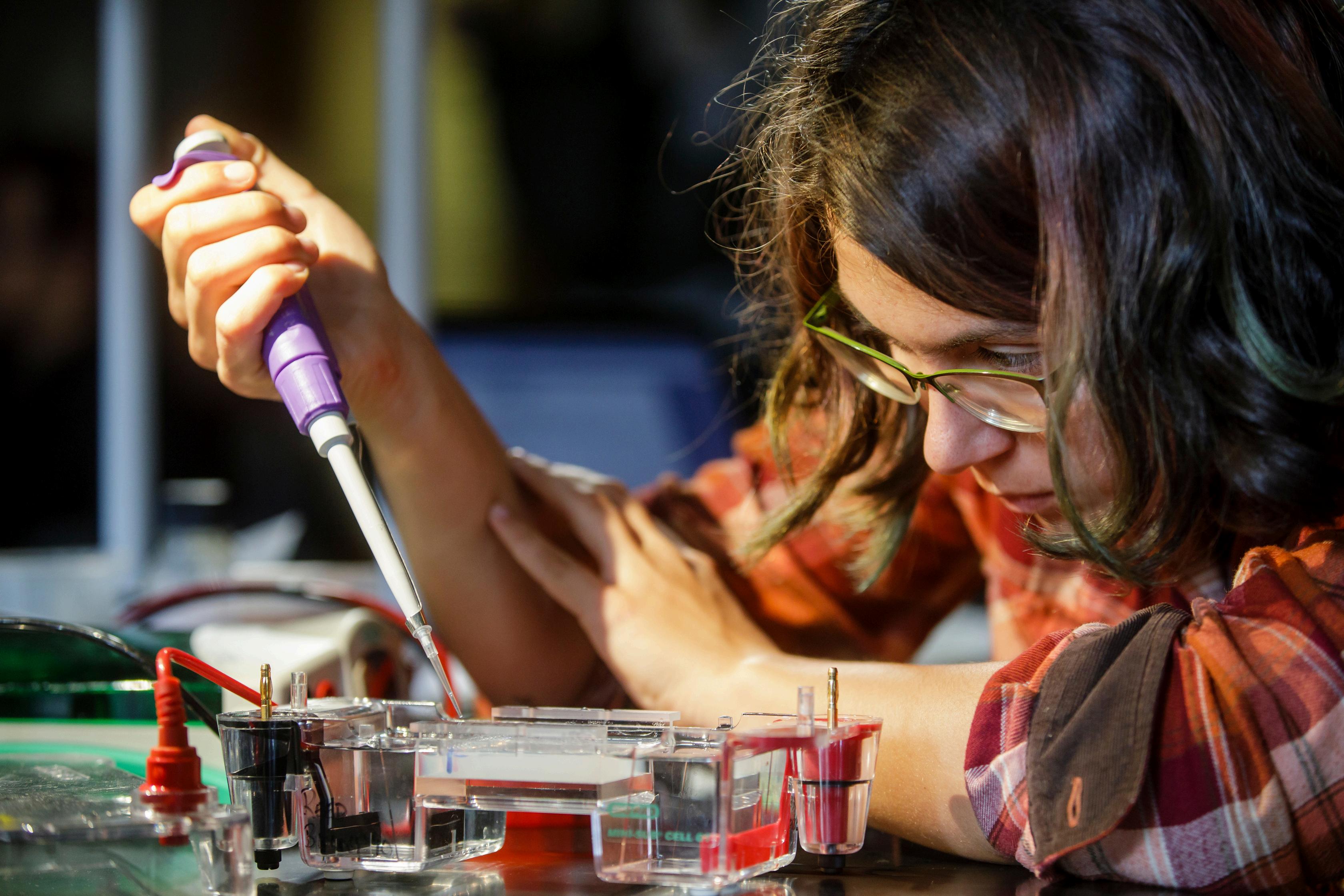
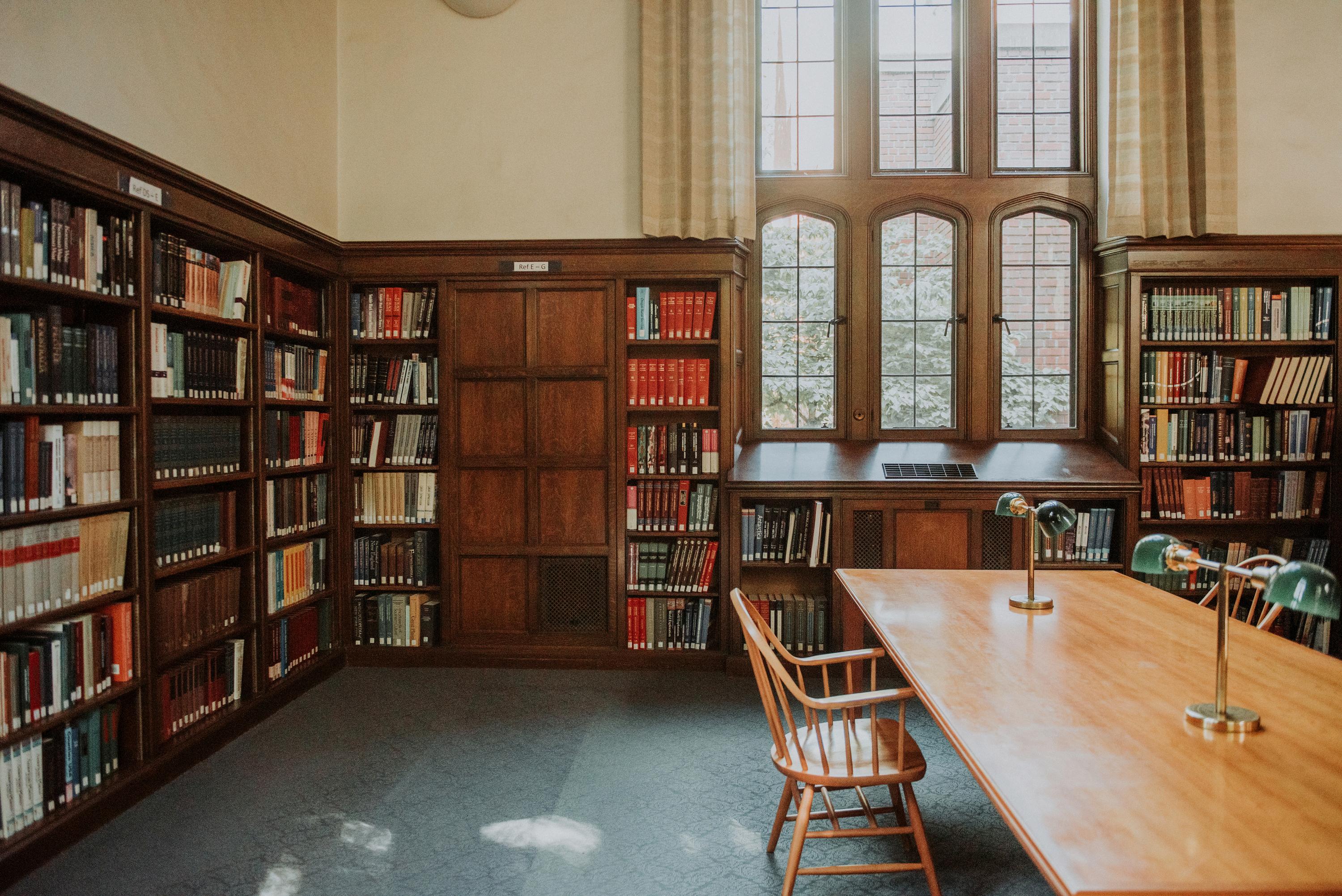
Isa Lu, a student studying psychology researched what drives philanthropic giving in socially, culturally, and economically diverse communities and conducted interviews with mutual aid organizations to understand how they sustain grassroots efforts aligned with social and economic justice. Additionally, she synthesized existing research on donors of color, which she then wove into her conversations with community leaders Under the supervision of Santi Alston, Associate Director of Gift Planning, Lu developed the critical research and organizational skills to generate valuable insights for the Advancement team at Reed, who can use her findings to inform future engagement strategies. Her experience underscores the importance of building trust and relationships in community-based research and points to opportunities for deeper, ongoing partnerships with local mutual aid networks
This project builds on a 2023 Social Justice Research & Education Fund (SJREF) initiative led by Soraya Mwangi, whose research informed a proposal for a pilot Advancement Student Internship Program at Reed College The program was designed to create opportunities for underrepresented students to explore careers in philanthropy.
This project combined art, data analysis, and community engagement to explore demographic changes in Portland’s Albina District over an extended historical period. Led by Michael Stevenson Jr., Visiting Assistant Professor of Art, the project produced educational materials for local schools while providing intern Seheno Randrianmanalina ‘25 with profound personal and professional growth. She gained deep insights into the complexities of race, culture, and social justice within the U.S., drawing connections to her own multicultural background and global perspectives. Stevenson reflected on the value of embedding sustained community engagement in academic settings, highlighting the potential for expanding such experiential learning opportunities at Reed.
Victoria Salazar, a student studying psychology supported the Library by creating culturally resonant library displays that amplified historically underrepresented voices. Through her internship, Salazar fostered greater cultural awareness and belonging across campus by designing exhibits tied to cultural affinity months that educated and engaged students, faculty, and staff. By developing a sustainable workflow for future student-led displays, the project led by Carly Lamphere, Science Librarian, ensured ongoing opportunities for student engagement and leadership in shaping inclusive campus spaces Salazar’s experience deepened her understanding of social justice and community engagement, modeling how experiential learning can cultivate skills and foster a campus climate where all members feel seen, and represented.

Community participation in Mending Quilt Project at Spring 2024 Dinner Dialogue


Our Mission is to complement and enrich the academic experience, promote identity exploration, and enhance the cultural capital and leadership skills of students through programs, events and direct student support.
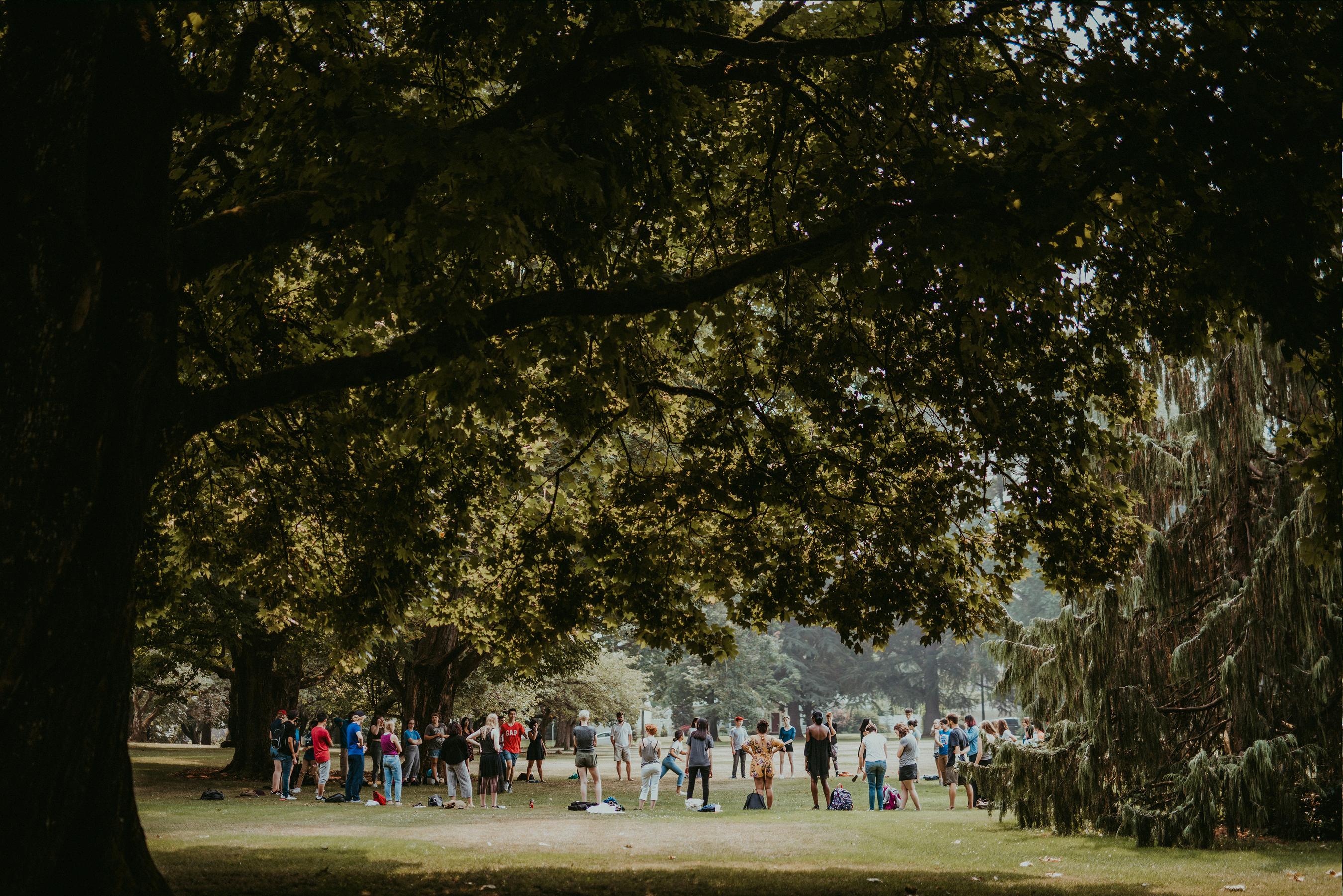
The Peer Mentor Program (PMP) plays a critical role in supporting the successful transition of new students from diverse backgrounds into the Reed College community. Established in 2001, PMP is strategically designed to foster a sense of belonging, build community, and connect first-year students with essential campus resources and relationships.
99% of participants reported that PMP was “helpful and supportive” or “very helpful and supportive” in their transition to the academic social environment at Reed.
95% of participants reported a meaningful relationship with their peer mentor.
98% of participants reported that they found PMP to be a supportive community
100% of mentors unanimously agreed that the peer mentor role provided them with a meaningful student leadership opportunity and experience.

Throughout the year, the Peer Mentor Program (PMP) hosted events designed to foster social, academic, and institutional belonging among first-year students at Reed College. In 2024–2025, PMP partnered with the Center for Life Beyond Reed to offer a joint workshop focused on resume and cover letter writing, equipping students with practical tools for future employment and internship opportunities.
To create casual, welcoming spaces for social connection outside of the classroom, PMP also hosted communitybuilding events such as zine-making workshops and relaxed “PMP Coffee Chats.” In addition, students participated in collaborative self-care and study sessions that provided academic support and a sense of camaraderie during highstress times in the semester
Highlights from the year included an Endof-Year Celebration at Punch Bowl Social in downtown Portland, and an off-campus trip to see the Portland Trail Blazers take on the Los Angeles Lakers on February 20 (complete with post-game free throws!). These events collectively play a vital role in supporting the holistic success of firstyear students, nurturing both their academic growth and personal sense of belonging within the Reed community

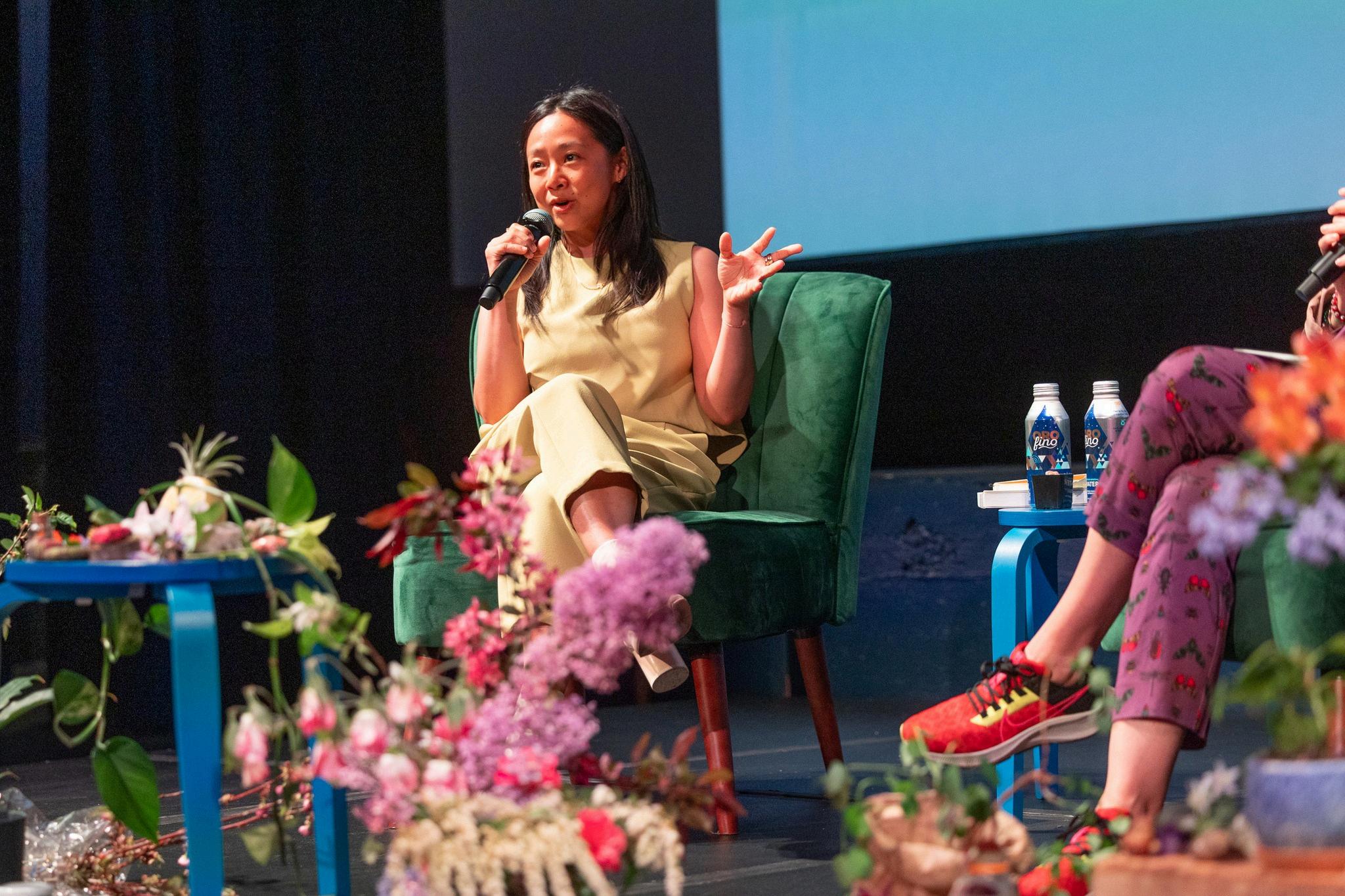
The Multicultural Resource Center sponsored 16 students, staff, and community partners (through a lottery) to attend an off-campus event with Stephanie Hsu, actress from Everything Everywhere All at Once, and The Marvelous Mrs. Maisel.


The spring selection for the MRC Book Club was Troubling the Water: The Urgent Work of Radical Belonging by Rev. Ben McBride a New York Times bestselling author, Atlantic Fellow for Racial Equity, CEO of the Empower Initiative, and longtime activist for peace and justice. McBride also delivered the Dr. Martin Luther King Jr. Keynote Address on February of 2025. The book club drew 50 participants, and approximately 90 attendees joined the keynote event. (Learn more about this key note address on page 8).
avigators event for p leaders o share ub to new will be the MRC ntation to

In recognition of Black History Month, the Multicultural Resource Center, in collaboration with the Black Student Union and the Zine Library, brought Momo Mullings- a LiberianJamaican Georgia-raised Baltimore-based writer, artist, organizer and archivist- to campus on February 7 for a visiting lecture in the Zine Library.
Mullings presented her project, the Black Zine Archive, a public archive of zines, independently published, and small press work by Black people or related to the Black experience.
This event was also the launch of the Black Zine Collection, a new permanent collection in the Reed College Zine Library, curated by Andee Gude ‘26 and Jaden Cabrera ‘26.
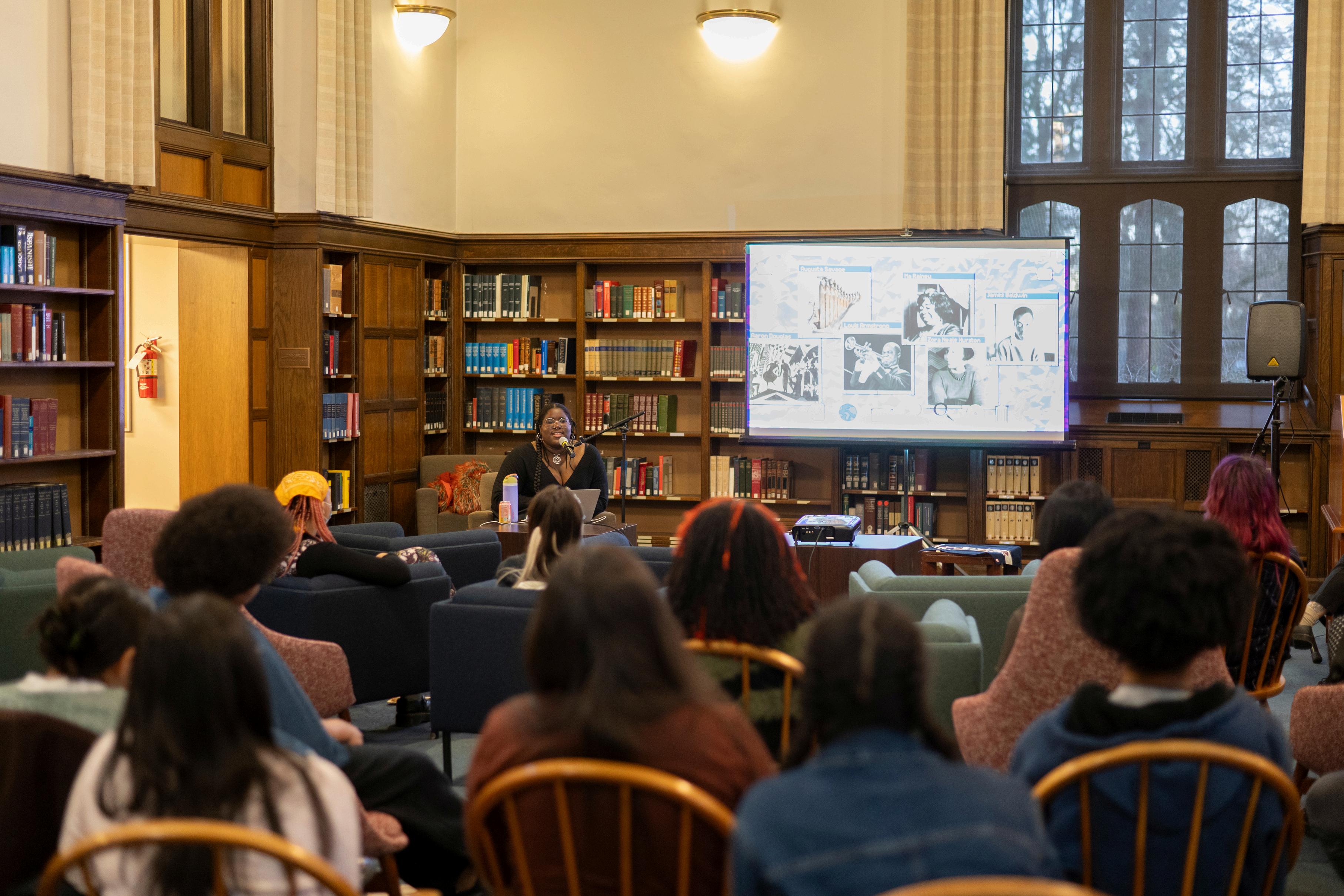
The MRC hired a team of students to plan and execute Reed’s first ever symposium focused on the research, lived experiences, and art from and about Asian and Pacific Islanders The event brought together over 100 participants from both the Reed community and the larger Portland community, including students, staff, faculty and community leaders.

The theme for the symposium was Hope, History, and Resistance. Students engaged in dialogue with peers and community members from the Pacific Northwest. By connecting students with with local community based organizations, the symposium fostered a sense of community, and served as a learning space to discuss critical issues that impact the API community.
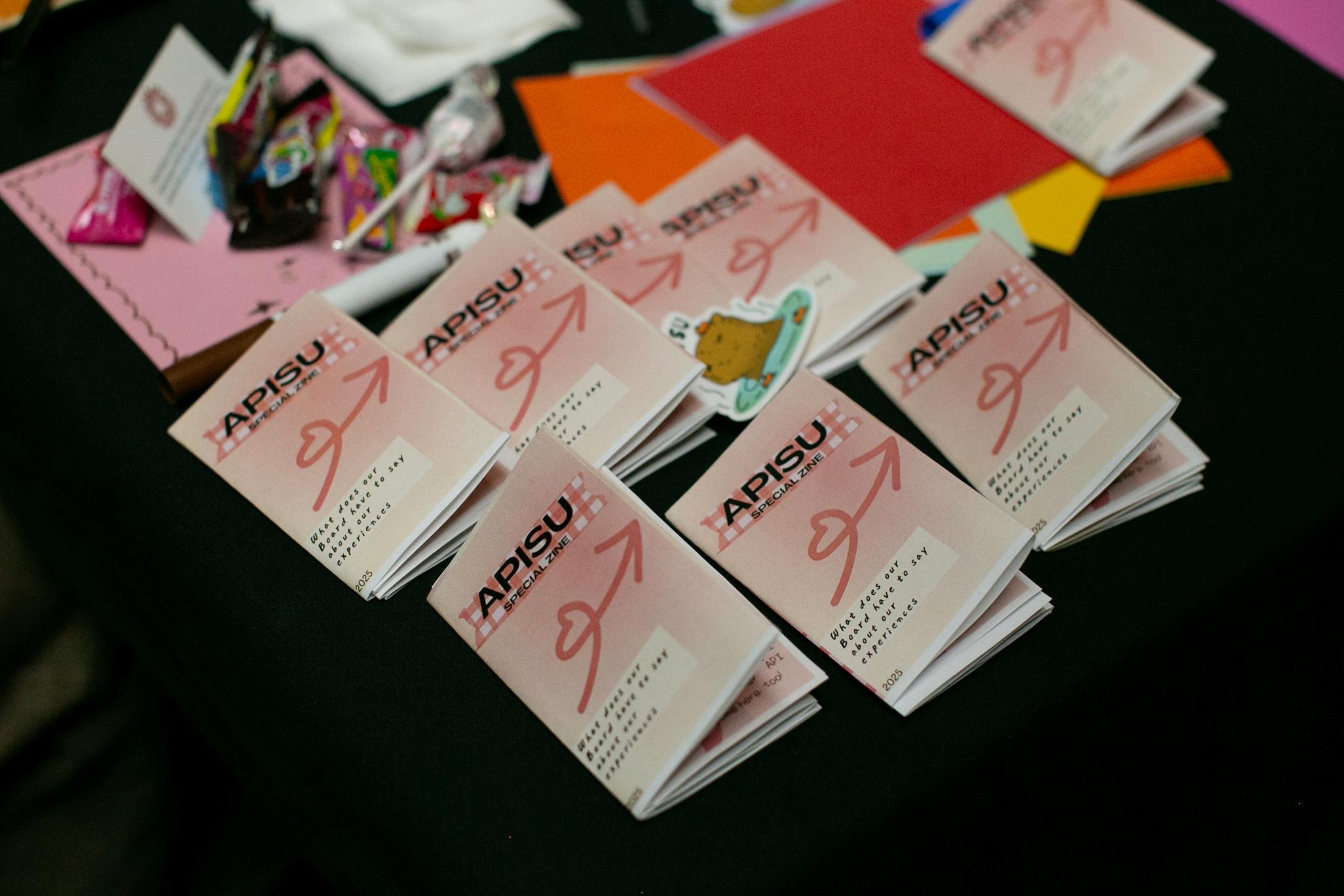
H O P EH I S T O R YR E S I S T A N C E
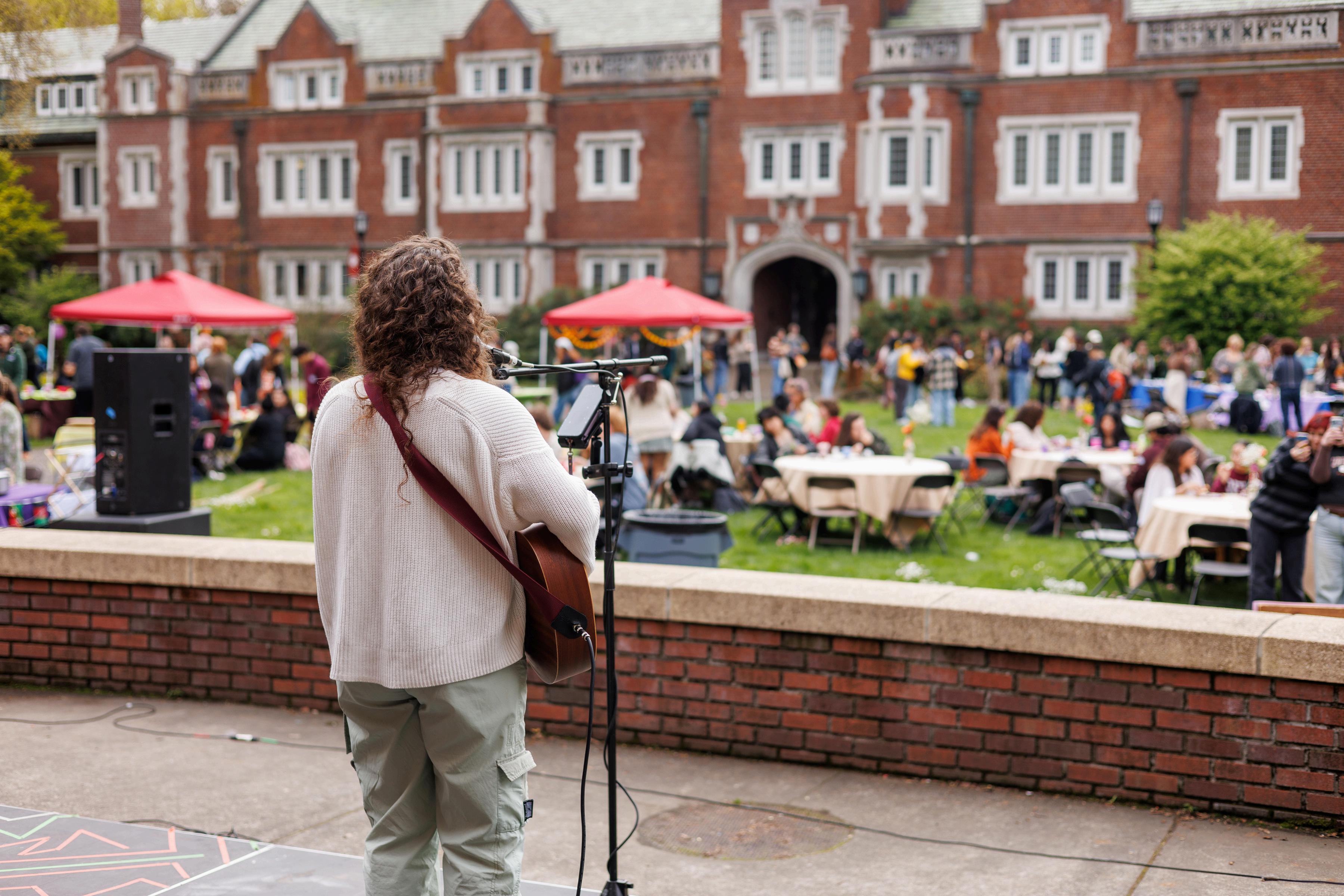
The Multicultural Festival features cultural performances, art displays, food tastings, and interactive activities that highlights the traditions and contributions of different cultural groups within the Reed community. The event provids a platform for cultural exchange, allowing participants to share their heritage and learn from one another in a vibrant and inclusive setting.
This year, the Multicultural Resource Center partnered with student
organizers to host the second annual Multicultural Festival on Friday, April 11 in the Quad. The Multicultural Festival celebrated our community’s diversity and cultures with traditional cultural performances, food, and activities. 15 student and campus groups tabled at this event to showcase their culture and heritage. Over 200 community members attended this event. This event was led by the student affinity groups in collaborative with the Office for Student Engagement.
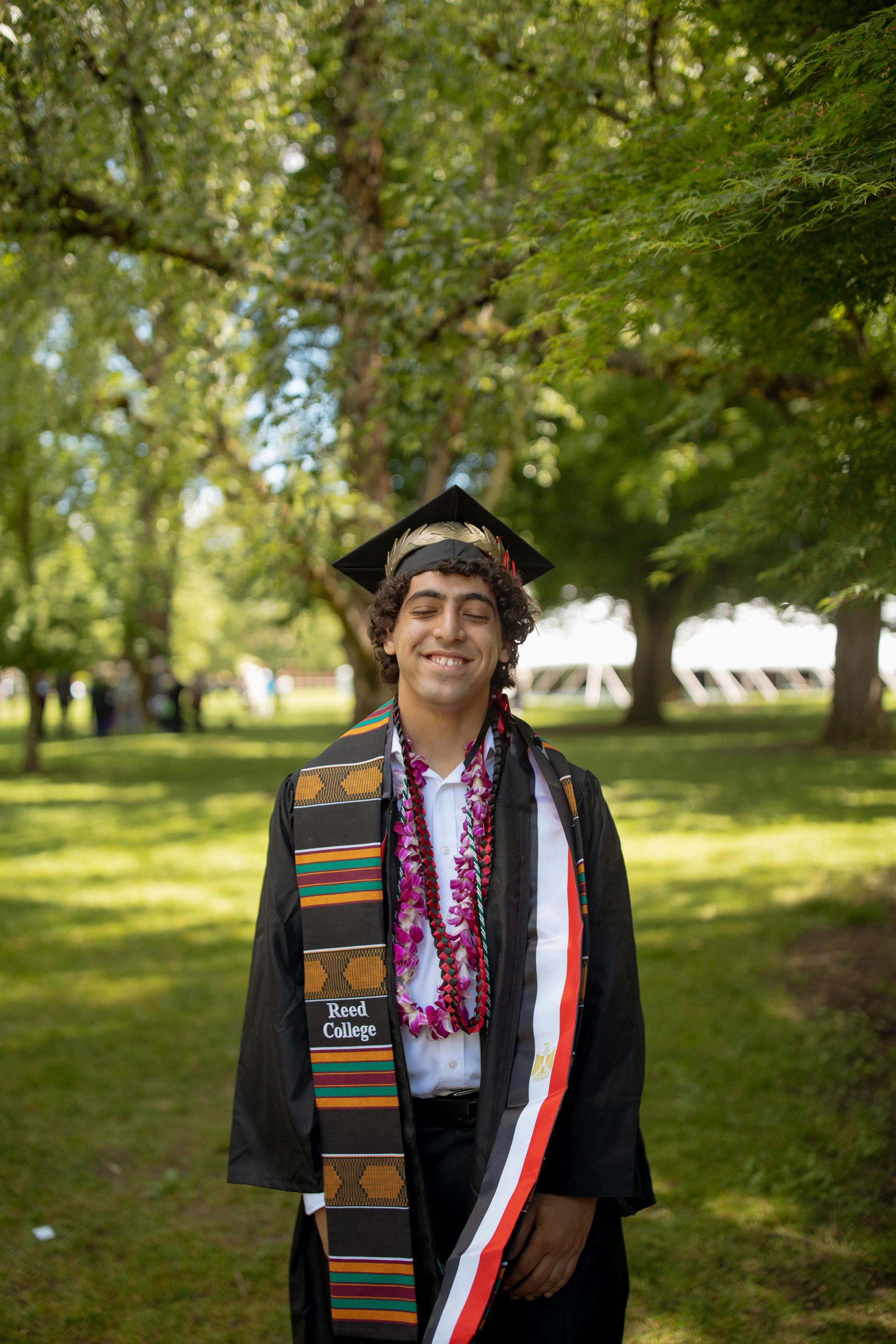
This annual celebration honors the cultural community that support student success. The ceremony celebrates our students, while also recognizing the faculty, staff, family members, and friends who have supported our graduates during their journey at Reed. Graduating seniors at Reed receive a special stole for their commencement regalia.
The MRC hosted its 6th annual Rite of Passage Ceremony- honoring the achievements of 65 graduating seniors who identify as multicultural and/or firstgeneration college students. The event was attended by 25 dedicated faculty and staff, whose participation underscored the importance of collective celebration and mentorship. More than 100 family members, friends, and supporters gathered to recognize the resilience, talent, and contributions of these students.

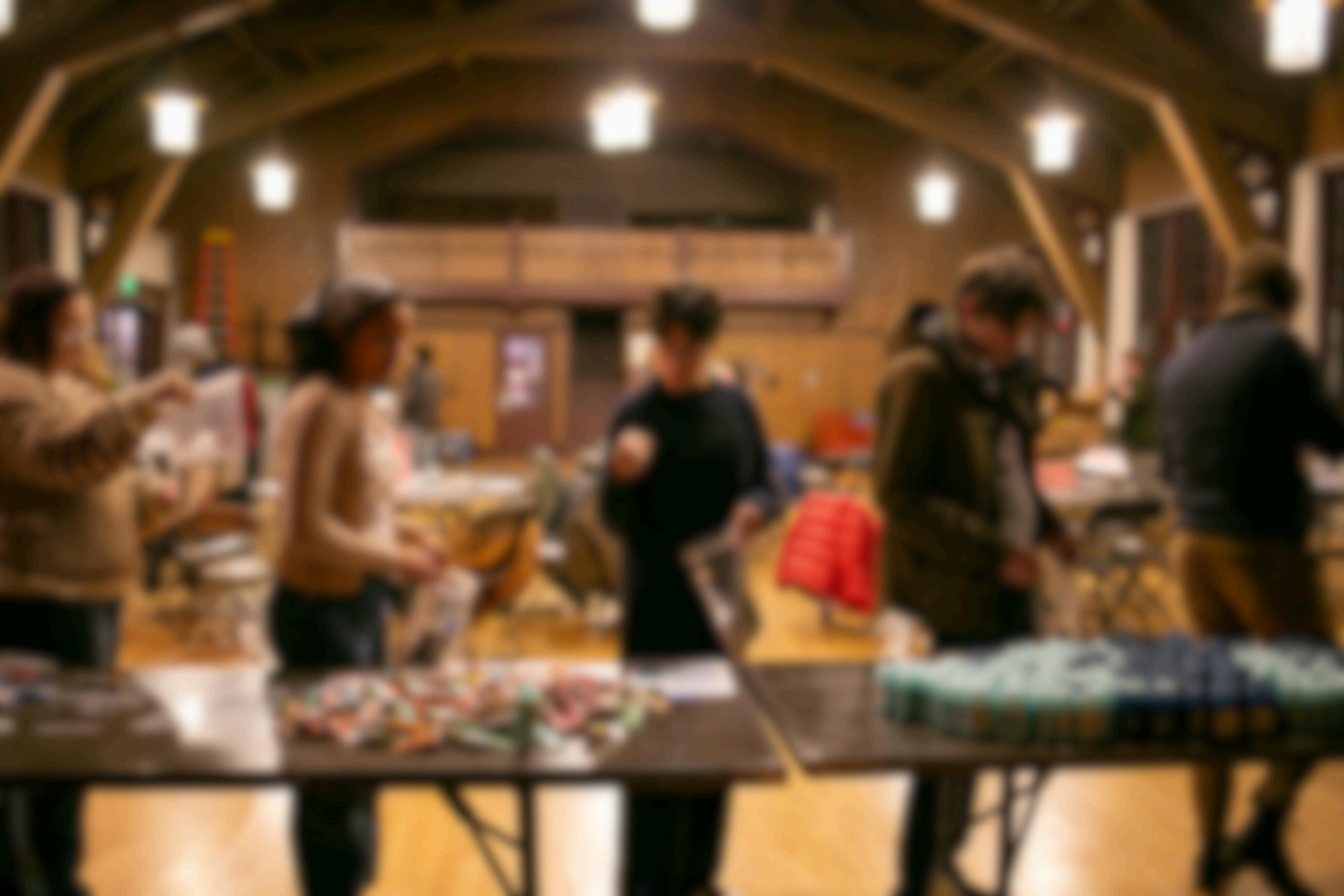

Our Mission is to build mutually beneficial relationships within the Portland community to foster sustainable and positive change.
The Community Engagement Internship Program offers students meaningful opportunities to engage with the Portland community. By partnering with local non-profit organizations, the program enables students to gain hands-on experience while actively contributing to social change and community development.
Rose Haven
The Gateway Center for Domestic Violence Services
Every Body Athletics
Blanchet House of Hospitality
Portland Art Museum
Minds Matter Portland
Metropolitan Family Services- CASH Oregon
SUN- Portland Parks and Rec
SCRAP Creative Reuse
PDX
Community for Positive Aging
350PDX
Mental Health & Addiction
Association of Oregon
Community for Positive Aging/ Hollywood Senior Center
SMART Reading
Sellwood Community House

Clackamas Service Center Grow Portland
Woodstock Pantry (All Saints Church)
Multnomah County Library
SOAR Immigration Legal Services (A Program of Ecumenical Ministries of Oregon)
Our Streets
ReBuilding Center
Marie Equi Center

The Community Engagement Internship Program has two paths:
In this pathway, Reed College subsidized positions for local nonprofits to hire students who are eligible for Federal Work-Study. SEEDS works closely with both the students and the partner organizations to ensure a mutually beneficial experience, where students can apply their knowledge, interests, skills and academic background in a practical setting while supporting the organization’s goals.
Total number of applications for a OCFWS Position: 164
Total number of positions hired for an OCFWS Position: 58
Students at Reed College are required to complete 6 units of Physical Education and Community Engagement (PEACE) credits as part of their graduation requirement. Students in this pathway could register to volunteer for at least 2 hours per week with a community and/or nonprofit organization to receive up to 2 units of community engagement credits towards the PE requirement.
Total number of students who received CE/PE credit through the CE Credit Program and : 18
The RCP is part of Reed College’s Basic Needs Initiative. The RCP provides fresh and nonperishable food items, toiletries, hygiene products and more at no cost to members of the Reed community. The RCP is committed to ensuring that all members of the Reed community students, faculty, and staff have access to basic necessities.
In addition to basic pantry operation, the RCP hosted community engagement programs such as the RCP picnic and participated in the Reed Zine Fest again this academic year hosted by the Library and published our 2nd sets of community recipe zines with recipes collected at RCP community events. The RCP recruits volunteers from the Reed community to support daily operations along with a student coordinator.
1185
Total number of visits to the Reed Community Pantry
5685
Total pounds of food distributed
359
Total number of unique guests

500
Total pounds of food donated
SEEDS periodically offers volunteer opportunities at local non-profit organizations for students to attend as a group. The Reed community can also participate in 1time Community Engagement Events such as Martin Luther King Jr. Day of Service, and blood drives throughout the year These events provide the Reed community with accessible ways to engage in service and support the community needs. Through these efforts, SEEDS strengthens the connection between Reed College and the broader Portland community, emphasizing the importance of civic engagement and social responsibility.
In 2024-2025 academic year, SEEDS hosted 5 volunteer programs, in addition to 4 on-campus blood drives through community partnership with Bloodwork NW. Community organizations include: City Nature West, the Woodstock Pantry, Ground Score Association, and Solve Oregon.

Reedies VOTE! strives to provide nonpartisan voter engagement resources for Reed students and encourages Reedies to register to vote.
Reed is part of the ALL IN Campus Democracy Challenge. SEEDS’s voter engagement team tables regularly and hosts community organizations such as the Multnomah County Elections Division and Next Up to keep students informed about voter engagement and provide civic engagement opportunities.
National civic holidays such as National Voter Registration Day and Vote Early Day are highlighted on campus.
In the 2024-2025 academic year, the Voter Engagement Team hosted 10 events
Community organization(s) partnered with: Multnomah County Elections Division TurboVote (Democracy Works) Next Up
National Voter Registration Day Vote Early Day Kilo D’Cofi
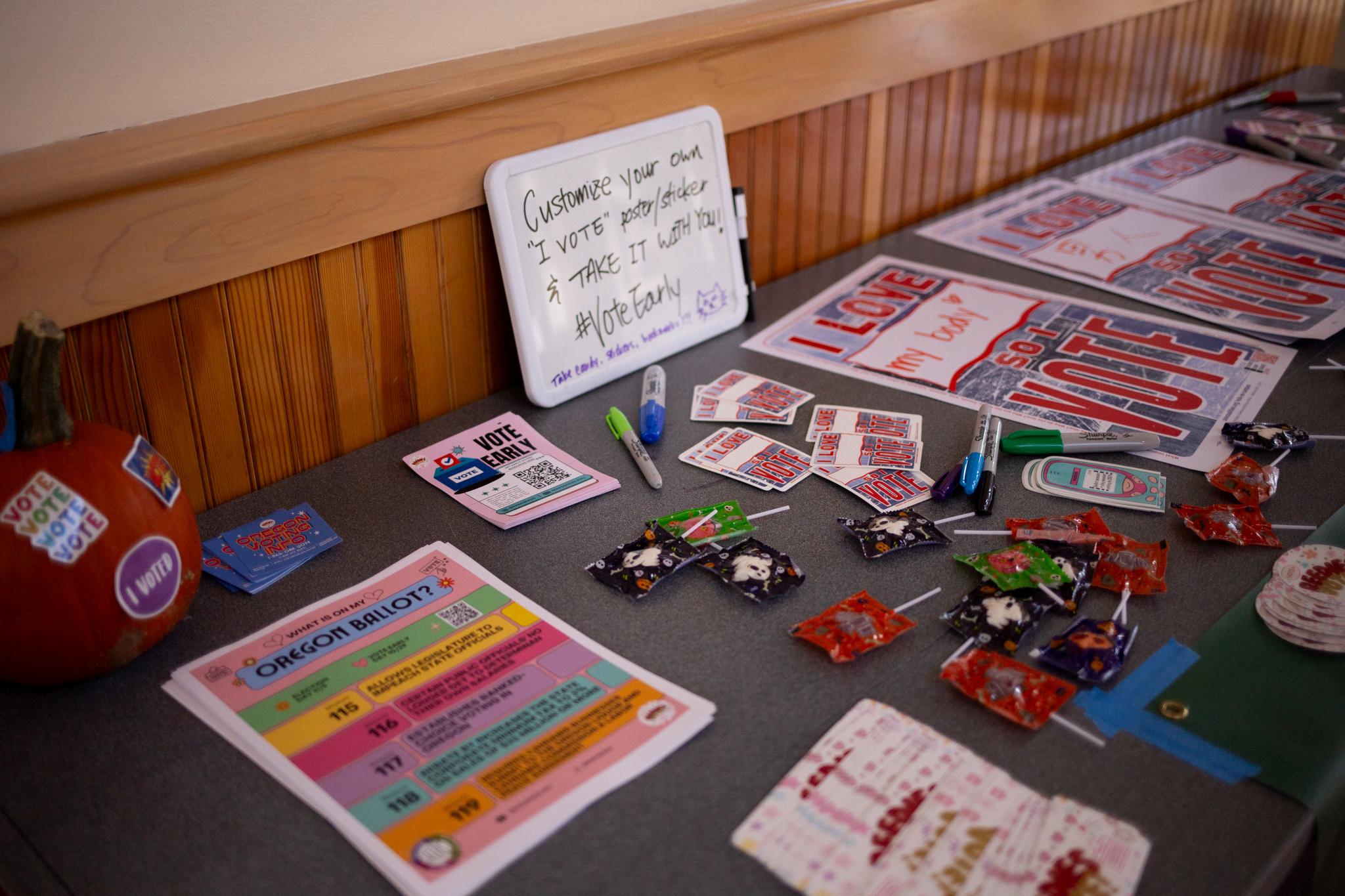

This election year, we utilized TurboVote, a product of Democracy Works, a non-partisan 501(c)(3) registered non-profit organization to help students register to vote and to vote by providing reliable, useful voting guidance
TurboVote Data from the 2024-2025 Election Year:
76 total signups
47 active users
50 users signed up for TurboVote notifications in 2024 at any time before the General Election on November 5
39 of these TurboVote users successfully registered to vote
27 of those users cast ballots in the General Election on or before November 5
78% registration rate
69% turnout rate among registered voters


The Office for Educational Development supports Reed’s mission by building institutional capacity for three essential predictors of student success: belonging, transparency, and academic confidence.
“The work of educational development is both structural and relational it lives in the systems we build and the trust we cultivate. This year, we made meaningful progress toward Reed’s strategic priorities by aligning equity-minded data with purposeful action, faculty learning, and cross-functional collaboration.

The efforts detailed in this report reflect a shared commitment to institutional transformation not as a singular initiative, but as an ongoing practice. We are shifting from isolated innovation to collective capacity-building. From transactional training to community-rooted learning. From temporary interventions to cultural change
Our work directly aligns with one of the college’s most urgent strategic priorities: increasing the four-year graduation rate in ways that lean into our diversity and antiracism statements. When we redesign learning environments to support those most impacted across multiple dimensions of identity, we build more inclusive structures that benefit all students ”
A 16-hour onboarding focused on Cultural and Community Wealth, Universal Design for Learning (UDL), and ecology mapping as a reflective tool for inclusive course design.
INCLUSIVE DESIGN FOR NEURODIVERENT LEARNERS
Faculty engaged with student narratives and UDL strategies to better support executive functioning challenges like time management and task initiation.
A two-day immersive with Felicia Rose Chavez, grounding antiracist pedagogy in writing practices and deep reflection.
Transparency in Learning and Teaching (TILT) is a scalable, research-based equity strategy. Faculty redesigned assignments to clarify purpose, task, and criteria for success.
Beyond the classroom, OED facilitated two cross-functional teams to build sustainable, equity-minded infrastructure:
4-WEEK ASSESSMENT INTIATIVE
Designed to ensure timely, transparent feedback and early intervention. The team spanning IR, Student Life, Registrar, and CTL has improved coordination and triage, with measurable impact on student outcomes.
This community of practice fostered trust across roles while using disaggregated data to interrogate institutional barriers. This group marked a cultural shift: from deficitminded explanations to equitycentered inquiry.
Launched in Spring 2025, the Belonging Community of Practice (CoP) is a collaborative initiative developed in partnership with Human Resources, Center for Teaching & Learning, and Institutional Diversity.
Grounded in adrienne maree brown’s theory of fractals, the CoP explores how small shifts in practice can increase belonging.


We kicked off our launch with a national webinar offered through the Council of Independent Colleges (CIC) that addressed the political headwinds facing higher education and the implications for institutional belonging. Presenters included Dr. Kristina Ruiz-Mesa, Dr. Jennifer Imazeki, and Daarel Burnette II. Afterwards, we followed up with a virtual “lean coffee” and an in-person reflection session, where Reed faculty and staff explored local strategies for student support amid national uncertainty.
Our summer sessions one virtual, one in-person centered on a researchbased framework exploring social capital, exclusion, group cohesion, and campus connection. Through participatory methods like story circles, dynamic criteria mapping, and shared artifact creation, we grounded abstract concepts in local context. This was action research in motion led by practitioners, fueled by community, and designed for impact.
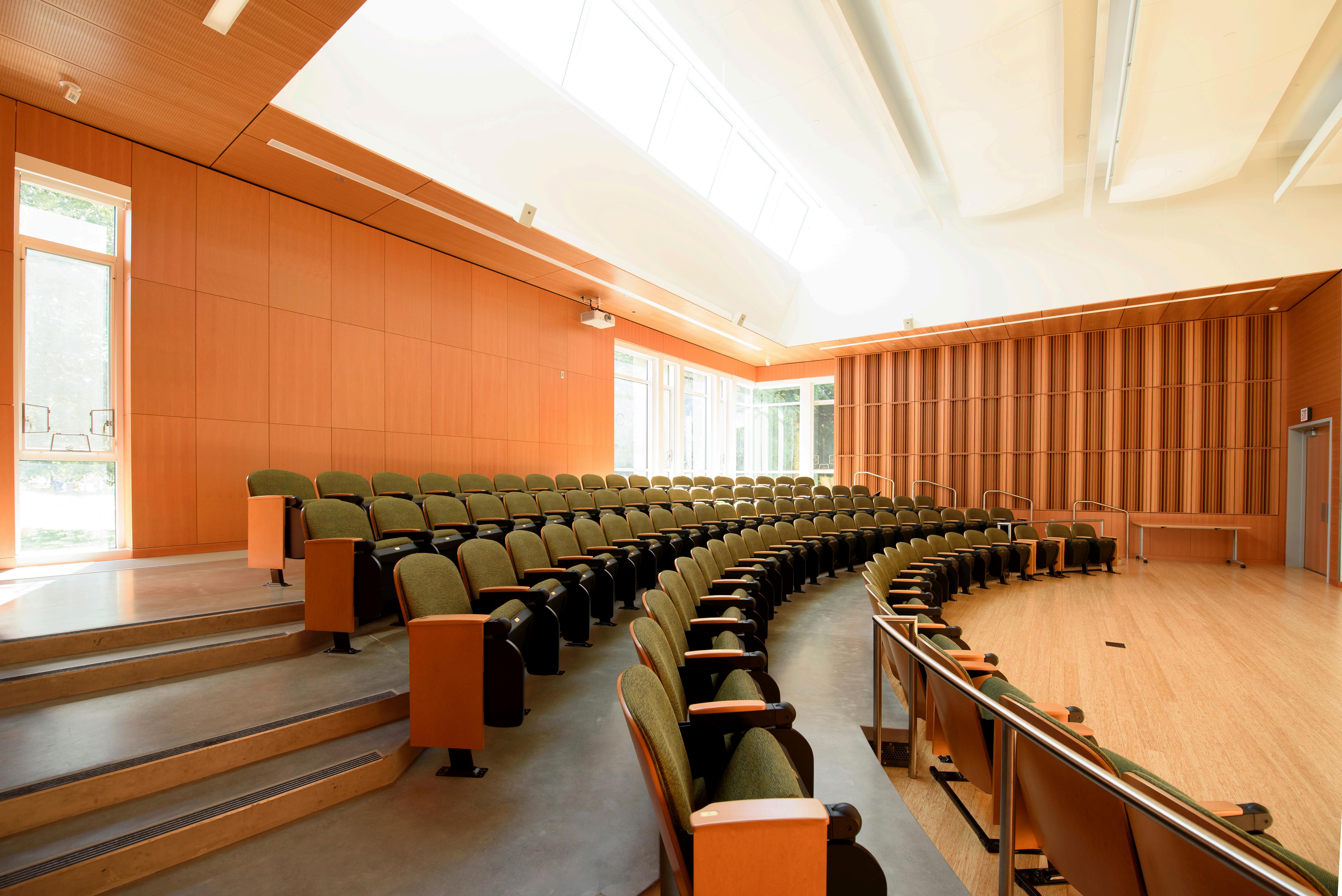


ed in 2014, the for Teaching & ng supports the pment and ment of teaching.
nter is directed ed faculty er in 2-3-year with support faculty advisory l.
When I took the role as director of the Center for Teaching and Learning (CTL), I had two explicit goals. One was to build on Mary Ashburn Miller’s work on creating space for faculty to have conversations about the academic program in general, and pedagogy in particular The second and more important goal, at least to me, was to strategically center the CTL within the academic priorities of the college. This creates synergy between the CTL, the faculty and the strategic goals of the College, creating a feedback loop that increases the probability of successfully reaching these goals.
To that end, you will see that my programming choices have been deliberately made with these goals in mind. As a result, some programming that had been a staple of prior CTL’s has been mothballed. Strategically, each programming decision I make has to align with a College priority elsewhere. Below I list some of the priorities and how I tried to align the CTL accordingly.
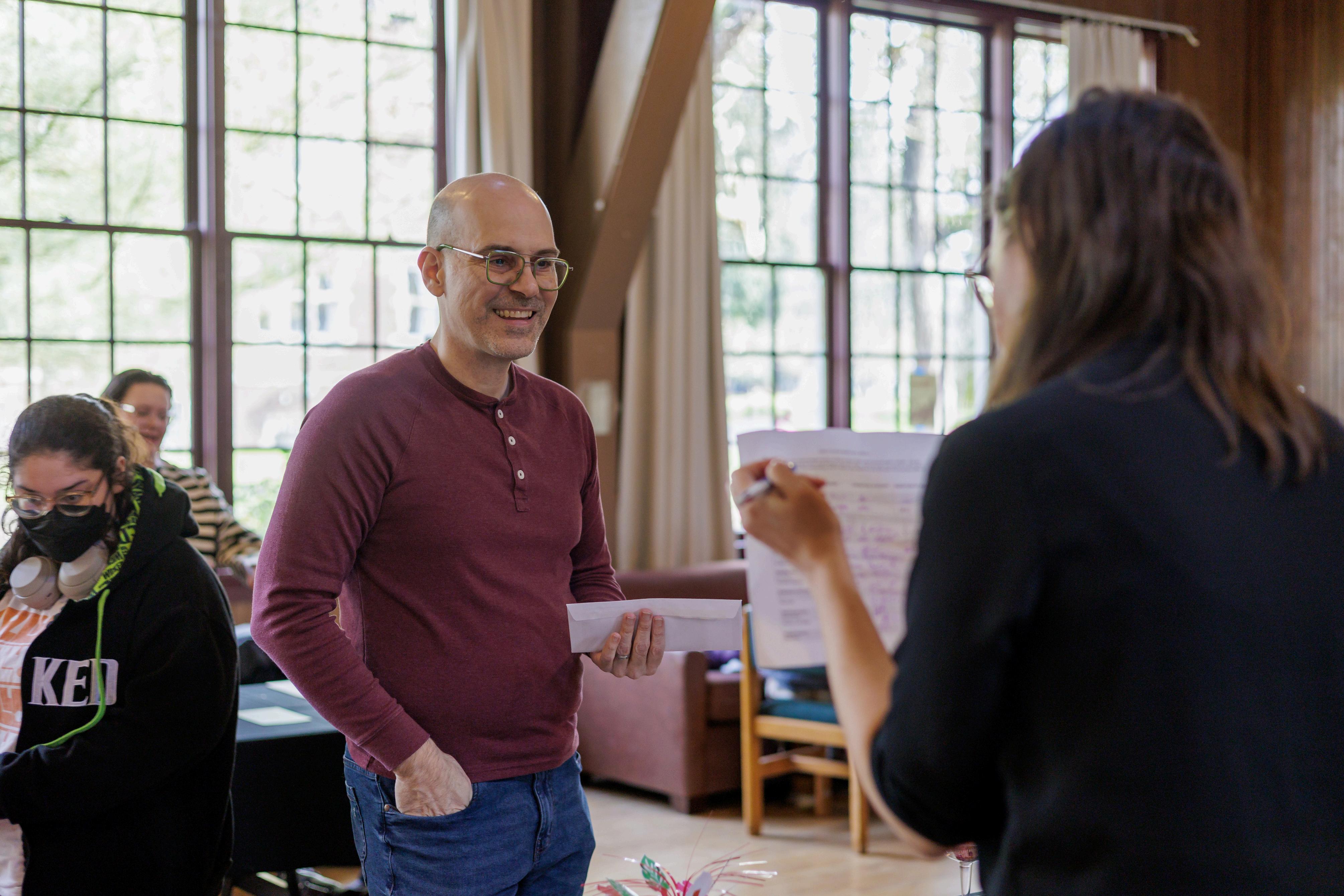
This fall, the Center for Teaching and Learning (CTL) launched CTL Visits, a new program inspired by a model at Occidental College. The initiative provided funding for faculty to invite colleagues from other Reed departments to teach in their classes for a day, offering students fresh perspectives on course topics and giving faculty the opportunity to observe different pedagogical approaches. In its first year, the program facilitated 15 cross-disciplinary visits, with pairings as varied as Philosophy and Chemistry, Religion and Mathematics, and Political Science and Greek, Latin and Mediterranean Studies.
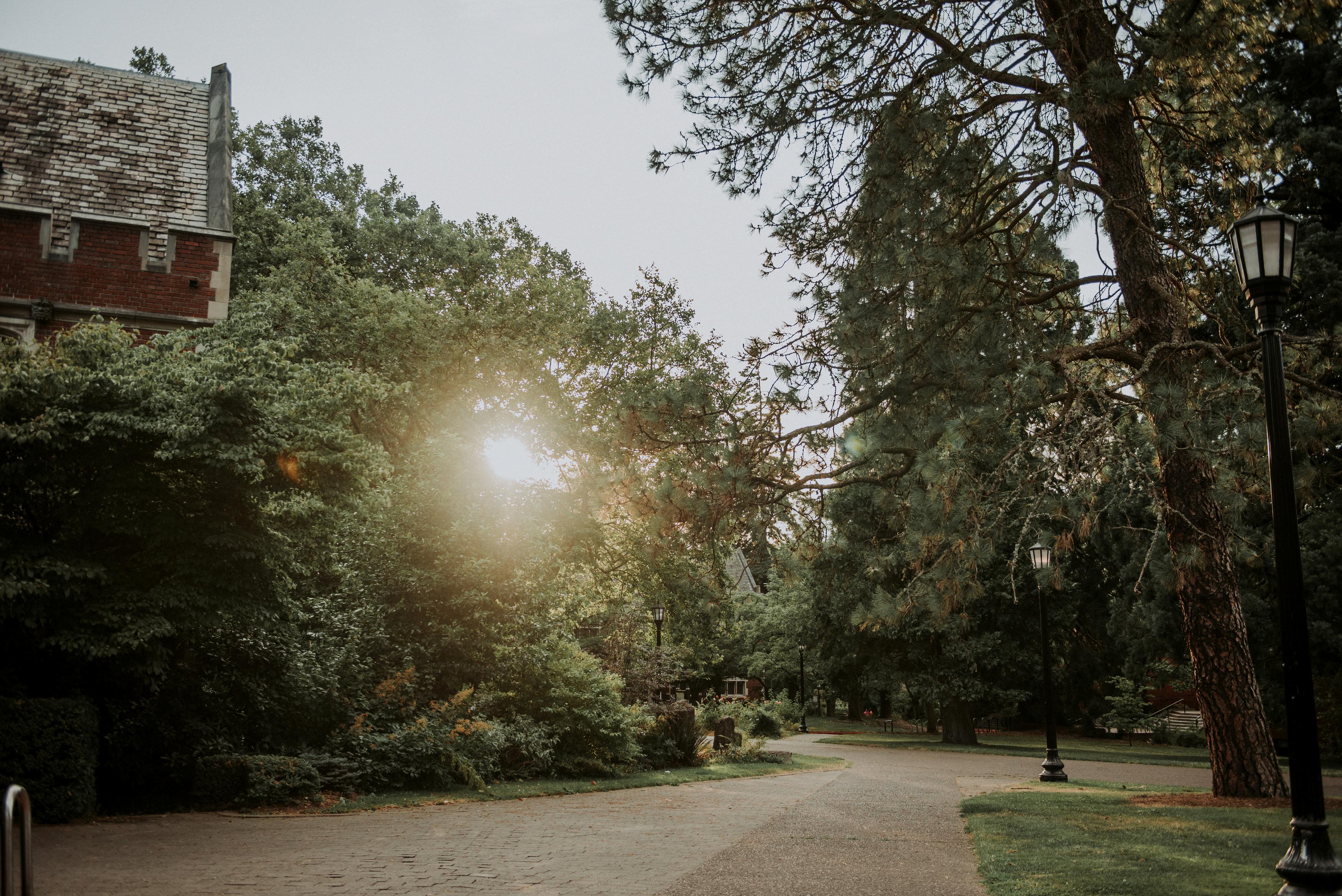
This year, the Center for Teaching and Learning (CTL) partnered with Beth Platte, Associate Director of Instructional Technology Services to launch the Language Pedagogy Workshop Series, offering visiting Language Scholars a dedicated space to discuss pedagogical challenges in their conversation classes a support previously unavailable to them. The CTL hosted four meetings that brought scholars together with language faculty to address concerns and share strategies. With the faculty’s recent vote to add a language requirement to Reed’s distribution requirements, the program presents an opportunity to better leverage the expertise of Language Scholars in helping students meet this new expectation. Plans are underway to deepen this collaboration in the coming year, with potential for the CTL to facilitate further conversations among language faculty.
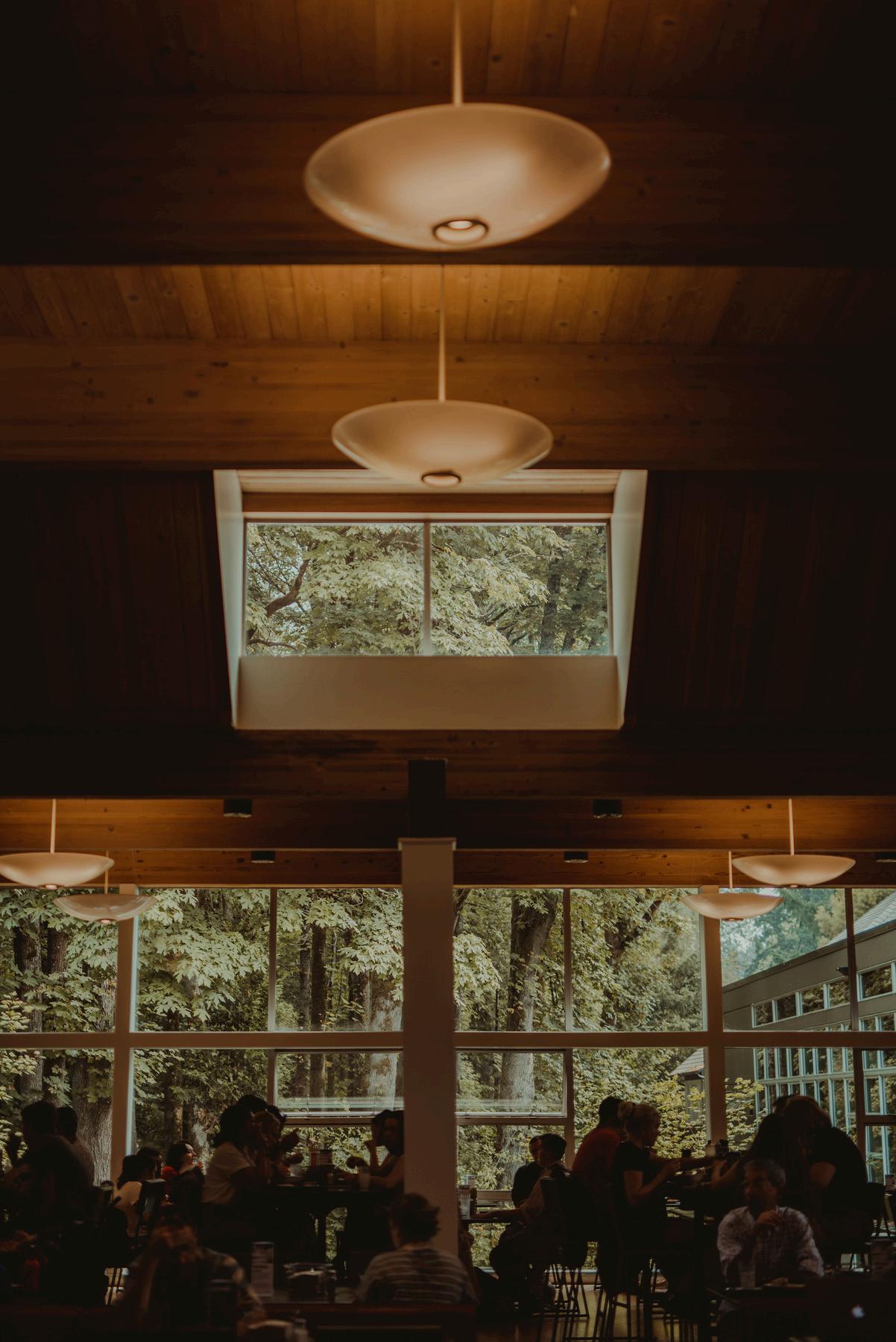
The CTL also convened two discussions on grading, providing a forum to continue conversations that had begun during faculty meetings but were cut short due to time constraints. At the request of CAPP, the CTL hosted a meeting with representatives from the introductory lab science departments to explore the varied ways they structure their courses. This conversation expanded in the fall to include 17 departments, sparking a broader exchange of ideas around the design of introductory courses across disciplines.
The Center for Teaching & Learning supported the inaugural President’s Council on Campus Climate (P3C) and, concurrently, the Digital Accessibility Collective (DAC), a group of staff dedicated to improving digital accessibility across campus. The DAC’s work took on added urgency with recent changes to Title III and HHS Section 504. The changes require all digital files, including those behind a log-in, to be in an accessible format by May 2026. Together, these committee engagements positioned disability in the classroom as a central focus of the CTL’s programming.
To advance this work, the CTL hosted two workshops on neurodivergence, a faculty-led session on Universal Design for Learning, and a two-part workshop with Jen Whetham on Transparency in Learning Techniques (TILT-ing). In collaboration with Beth Platte and Trina Marmarelli from ITS, the CTL also offered 12 workshops focused on various aspects of digital accessibility.
With significant preparation still needed to meet the 2026 accessibility deadline, this area is expected to remain a major component of CTL programming in the coming year.


The Center for Teaching and Learning (CTL) advances the college’s strategic priority to improve retention, persistence, and graduation rates through a range of initiatives.
As part of a cross-functional team with members from Student Life, Academic Support, the Registrar’s Office, and Institutional Research, the CTL helped implement faculty-approved changes to the four-week comment system, adopted in Spring 2024, to provide students with more meaningful feedback earlier in the semester. The CTL hosted two faculty workshops on the revised system and supported efforts to align the eight-week comment process with the updated four-week model. Next year, the team will evaluate the impact of these changes on student performance.
The CTL also led a spring learning series on alternative grading practices, bringing together 18 faculty and staff to explore approaches that move beyond traditional points-based systems toward models emphasizing transparency, continuous feedback, and student learning. Using Grading for Growth by David Clark and Robert Talbert as a shared text, the group engaged in discussion and participated in two virtual sessions with Clark to deepen understanding. The series culminated in a twoday workshop, where faculty integrated alternative grading strategies into one of their courses.
This work will enable future analysis of whether these redesigned courses improve student retention and persistence outcomes.
In the fall, the Center for Teaching and Learning (CTL) hosted faculty open houses to gather feedback on which programs were most valuable The Student Teaching Consultant (STC) Program emerged as a particularly formative resource, especially for faculty new to Reed. This year, students served as STCs for 15 classes taught by 13 different faculty members.
In the spring, the CTL piloted a new leadership model in which two experienced STCs served as group leaders Drawing on their prior experience, these leaders facilitated the initial training session for STCs at the start of the semester and led the program’s weekly meetings. The leaders approached their roles with notable care and effort, creating an environment in which other STCs reported feeling especially supported. Given the success of this pilot, the CTL plans to continue the leadership model in future semesters, with the goal of rotating the leadership role among different STCs each term
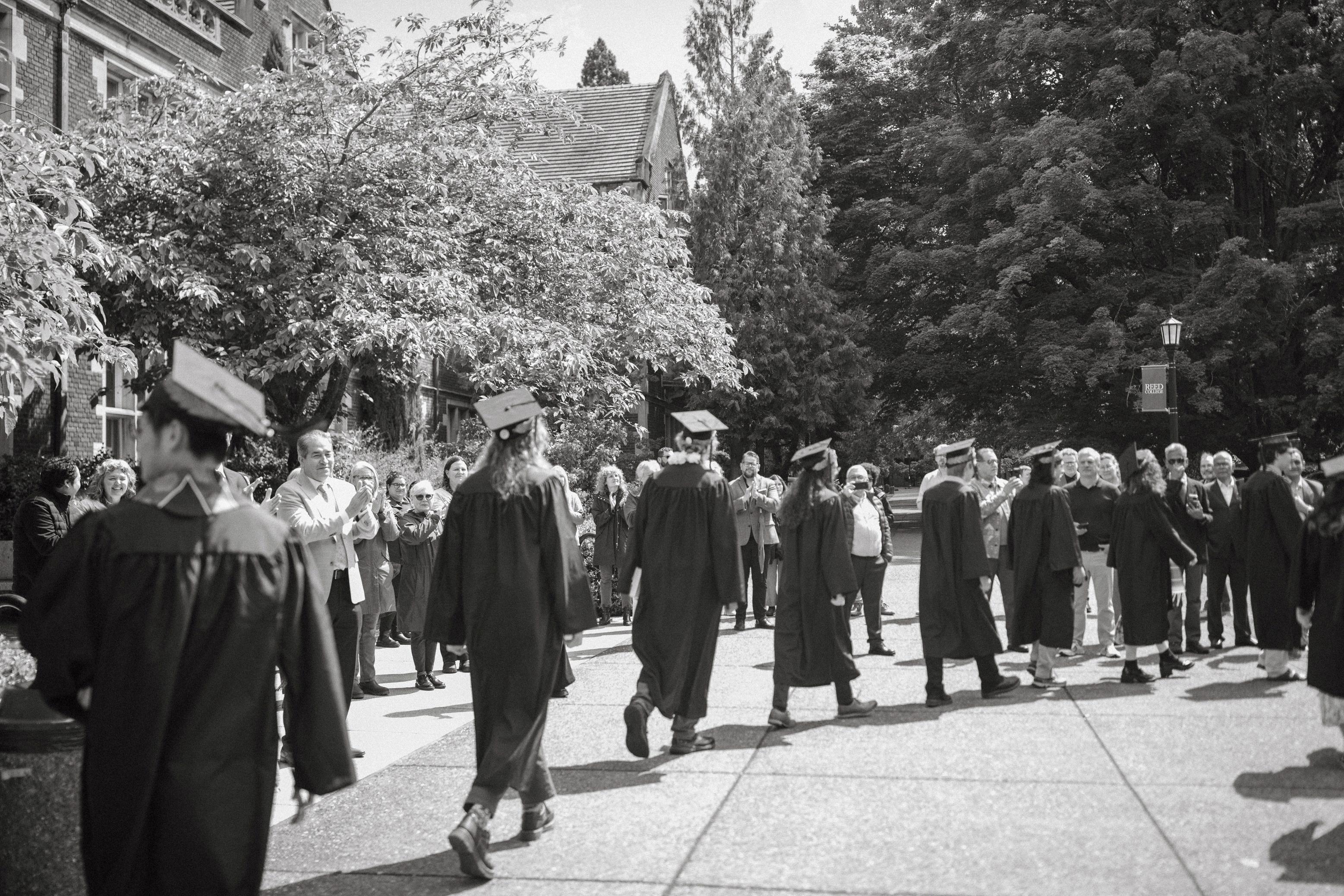
The work of this division thrives on the collective efforts of this remarkable community. Whether you've collaborated with us on a project, shared your expertise, offered resources, or supported us in countless other ways, we extend our deepest gratitude to our community partners who continue to walk with us, challenge us, and support us in our pursuit of a community where all can belong, thrive, and flourish.
To learn more about the Office for Institutional Diversity, please visit our website at:
www.reed.edu/institutional_diversity